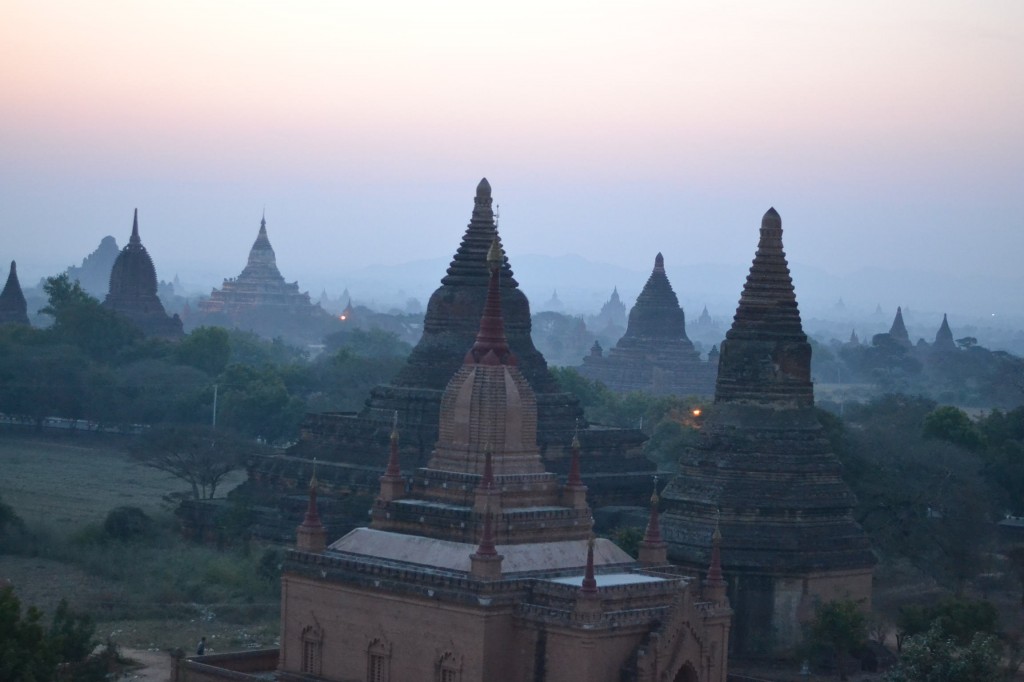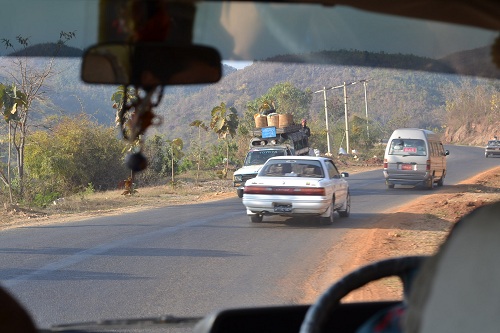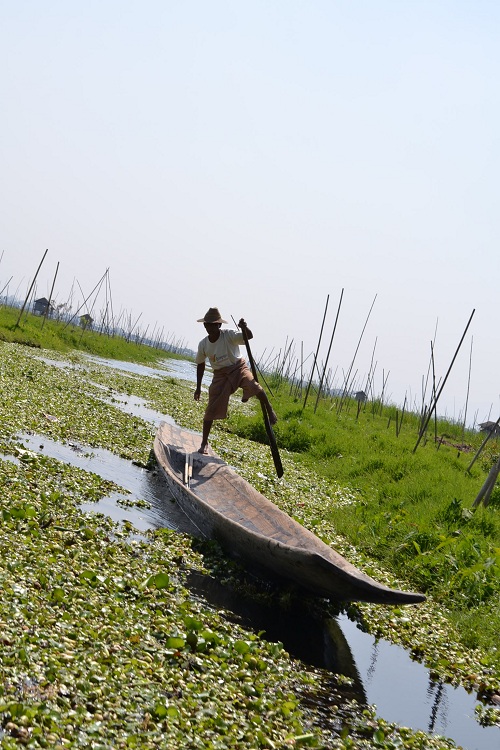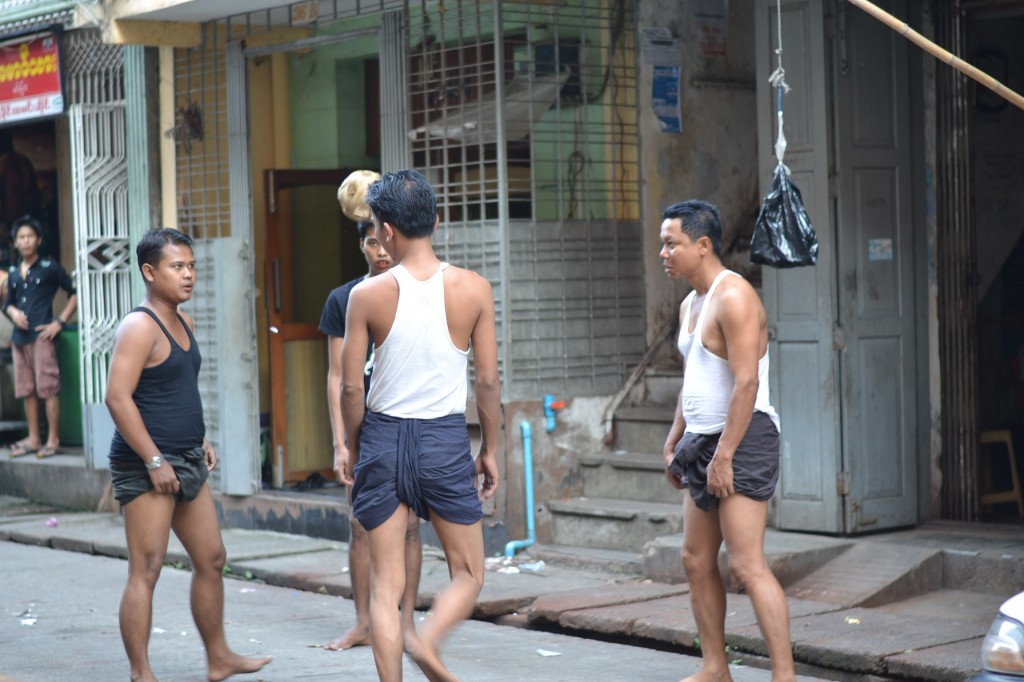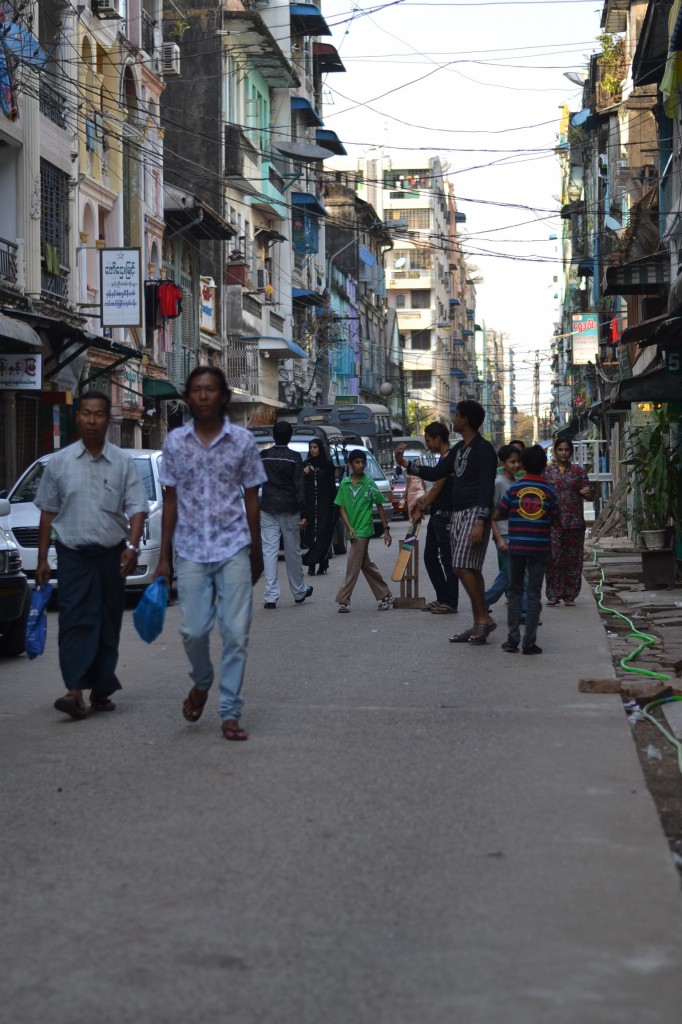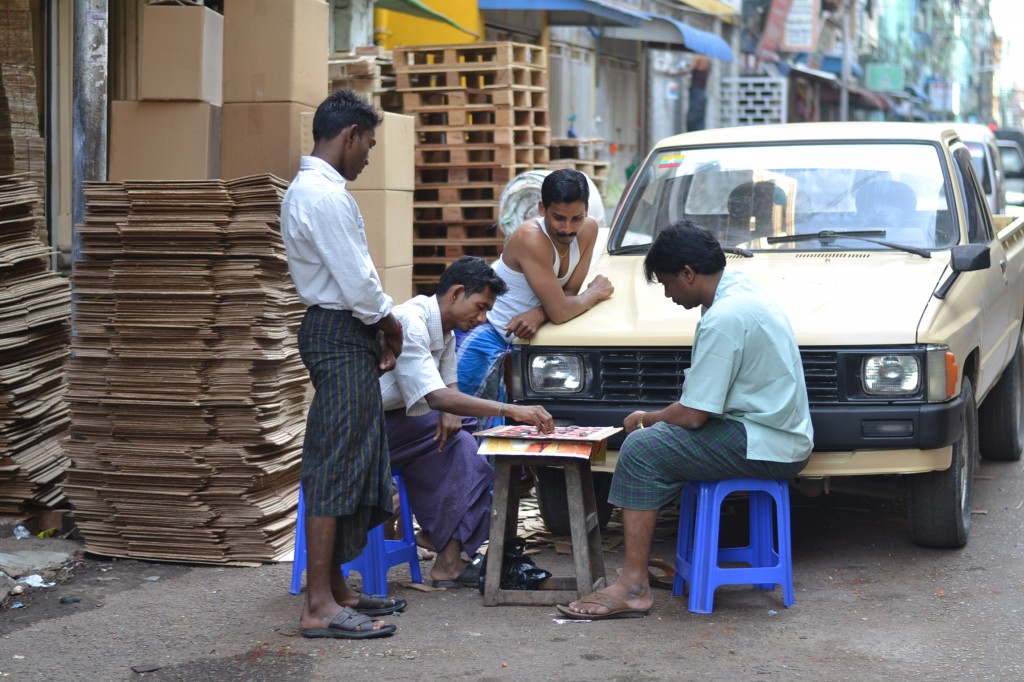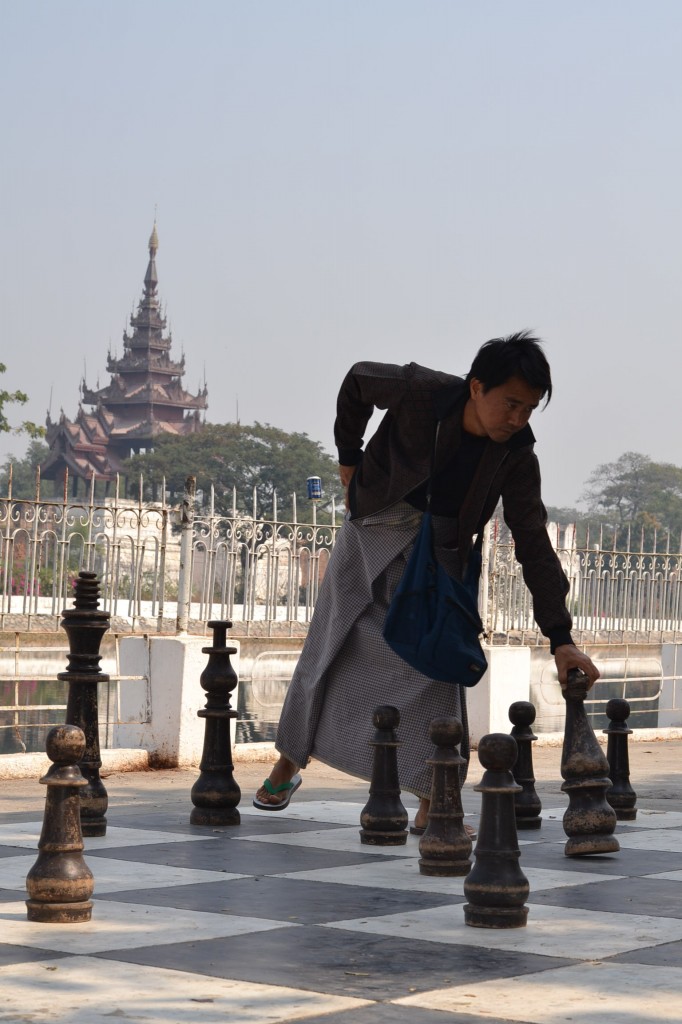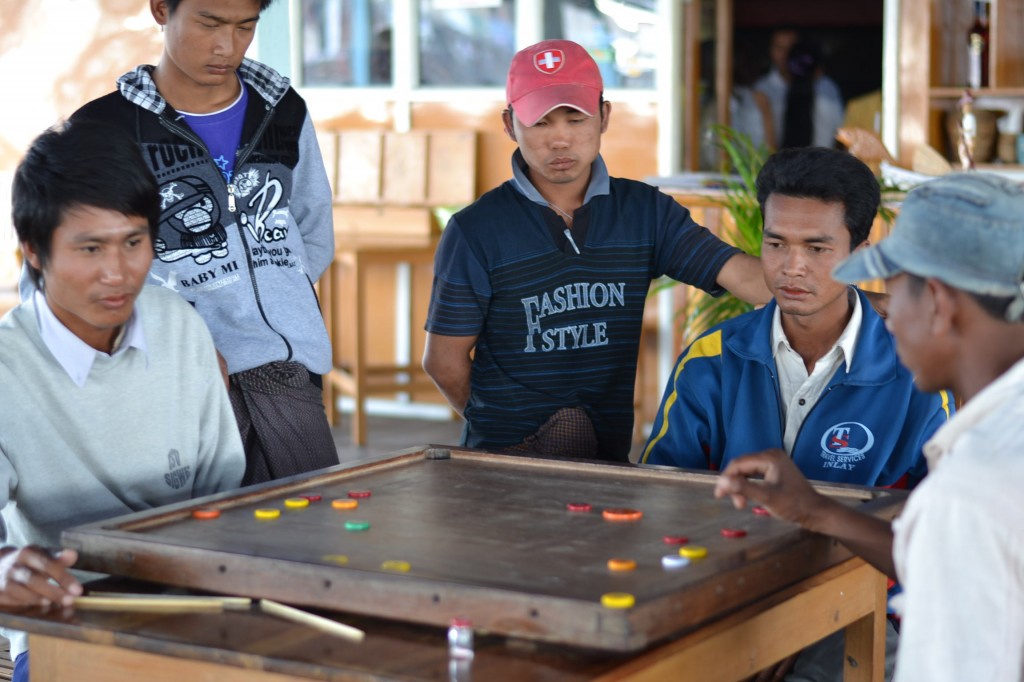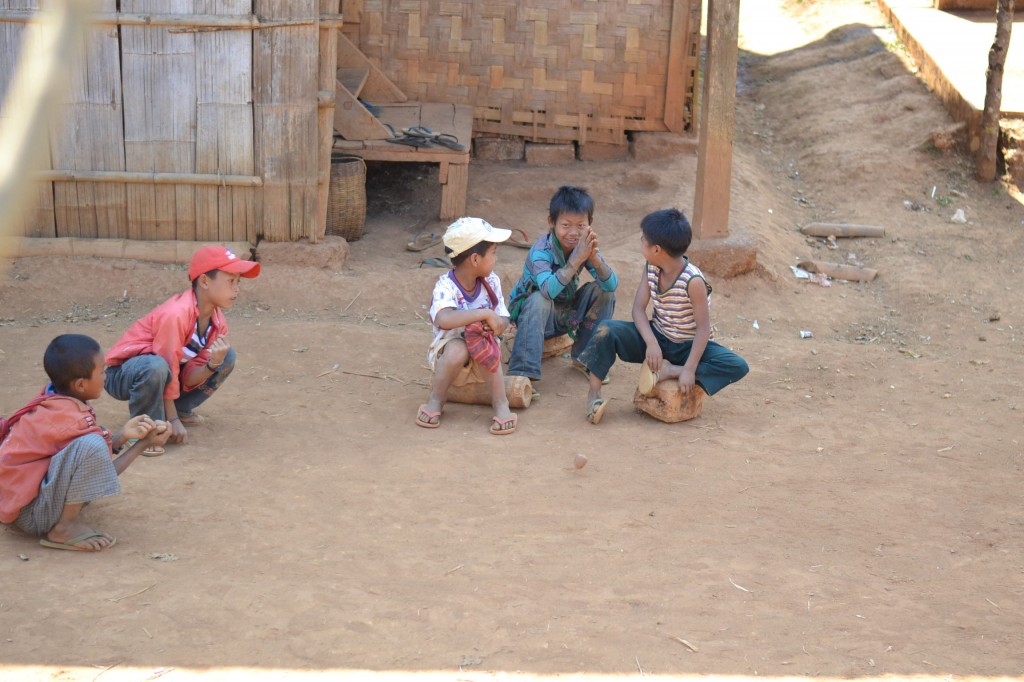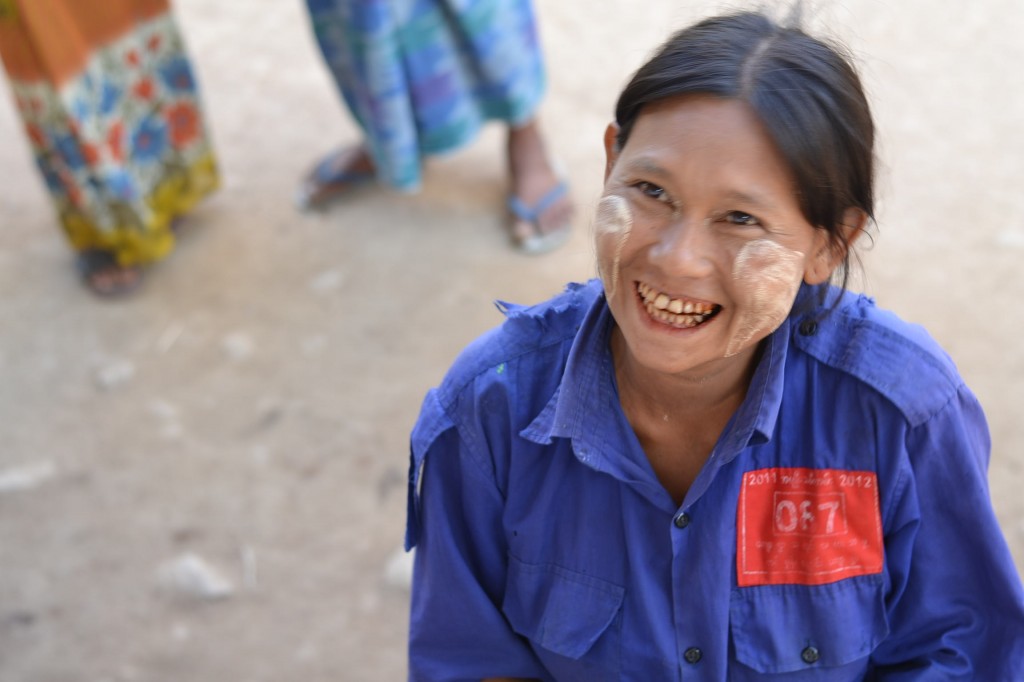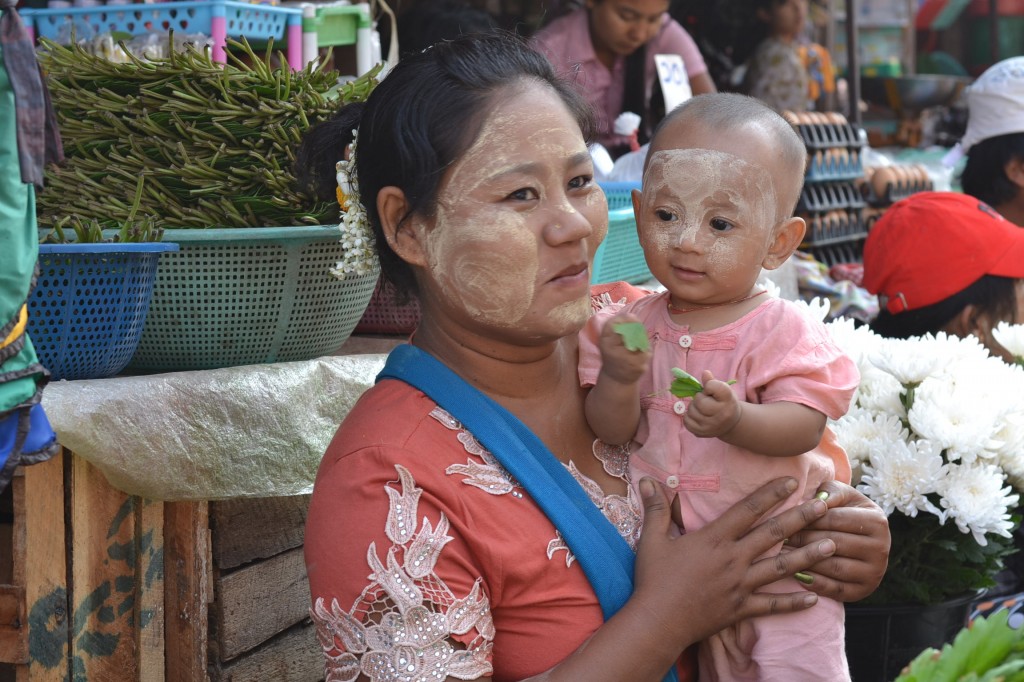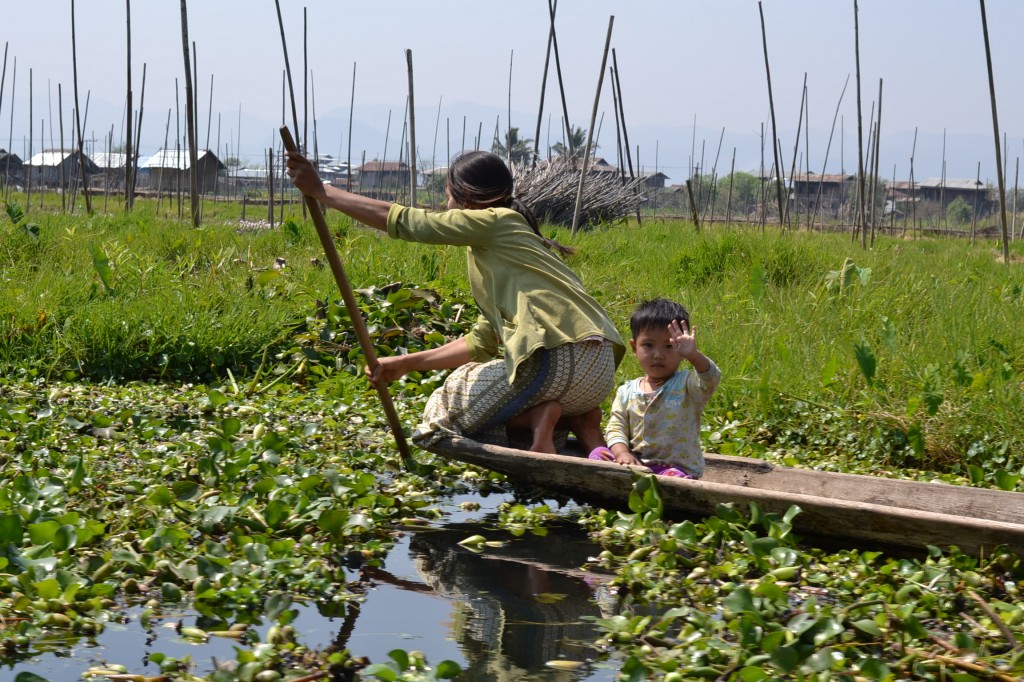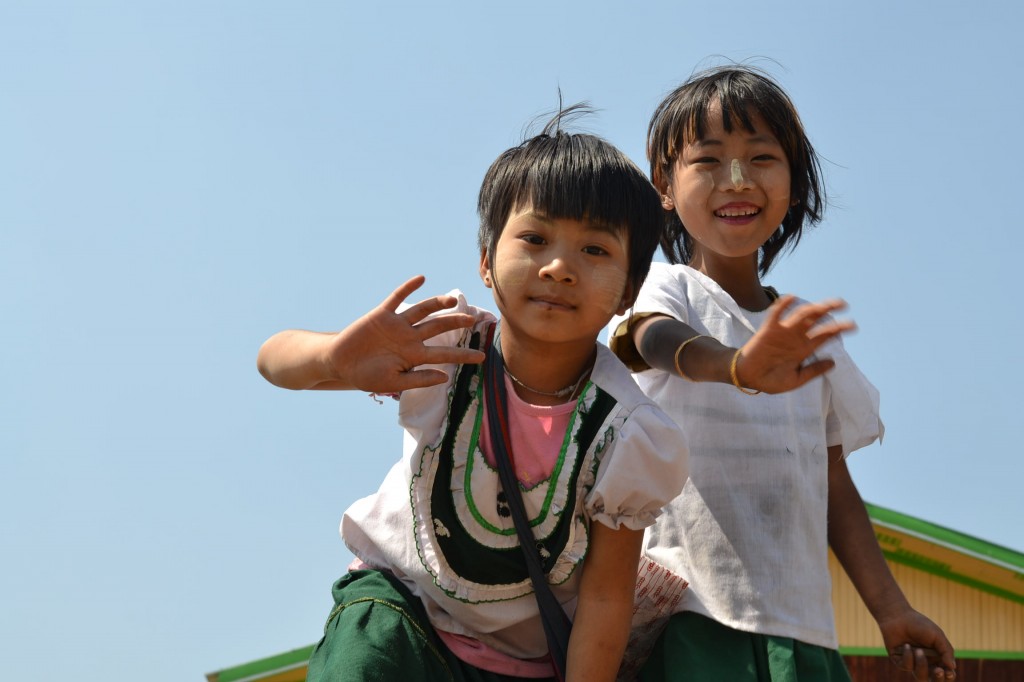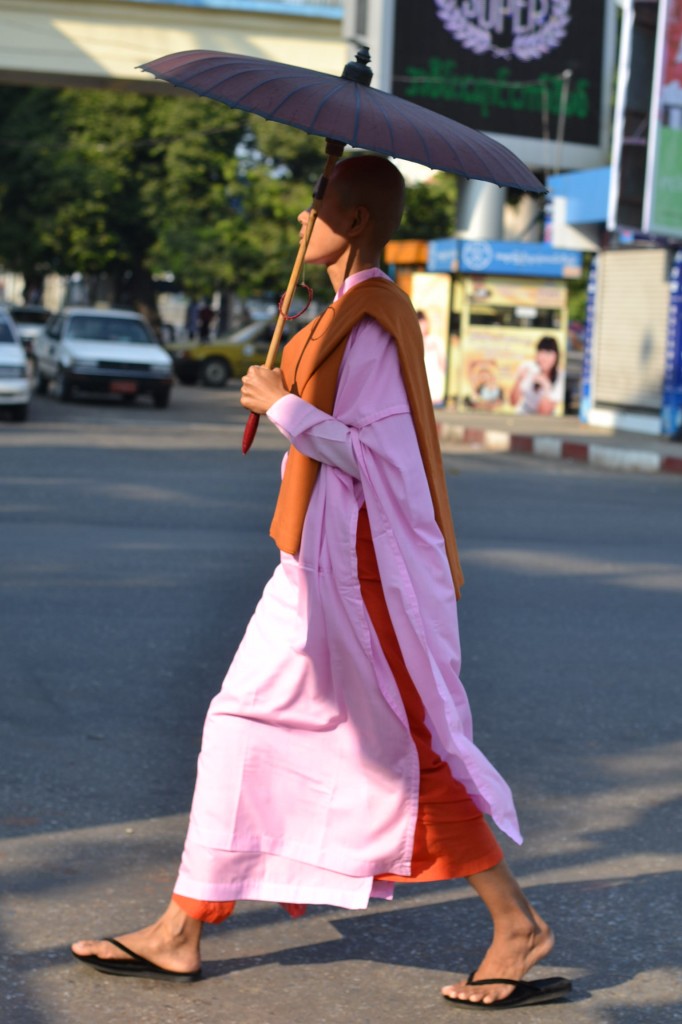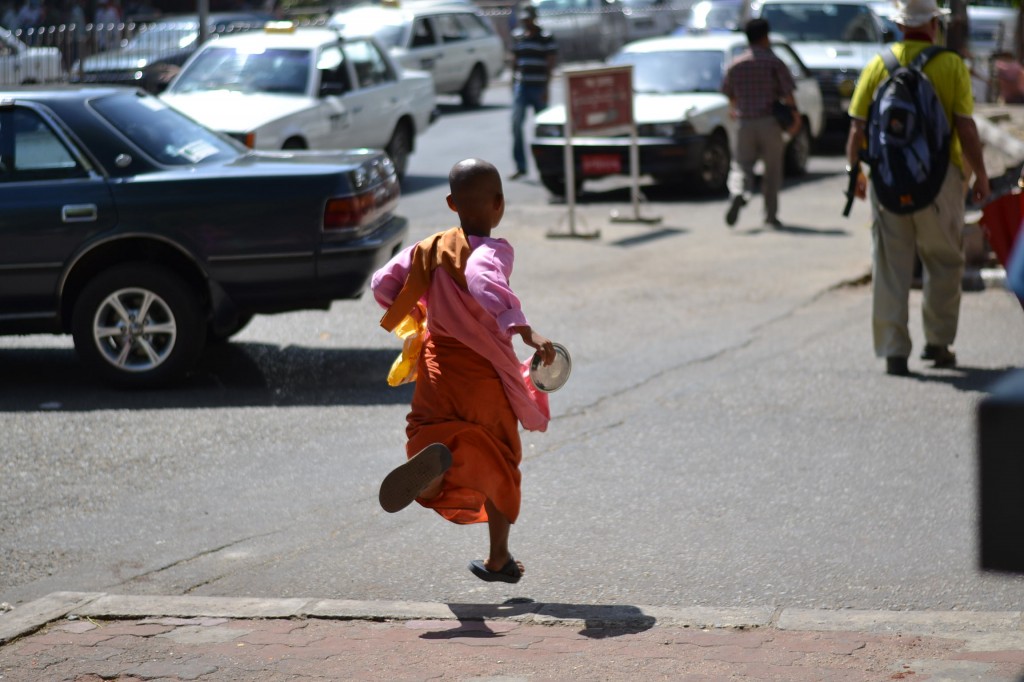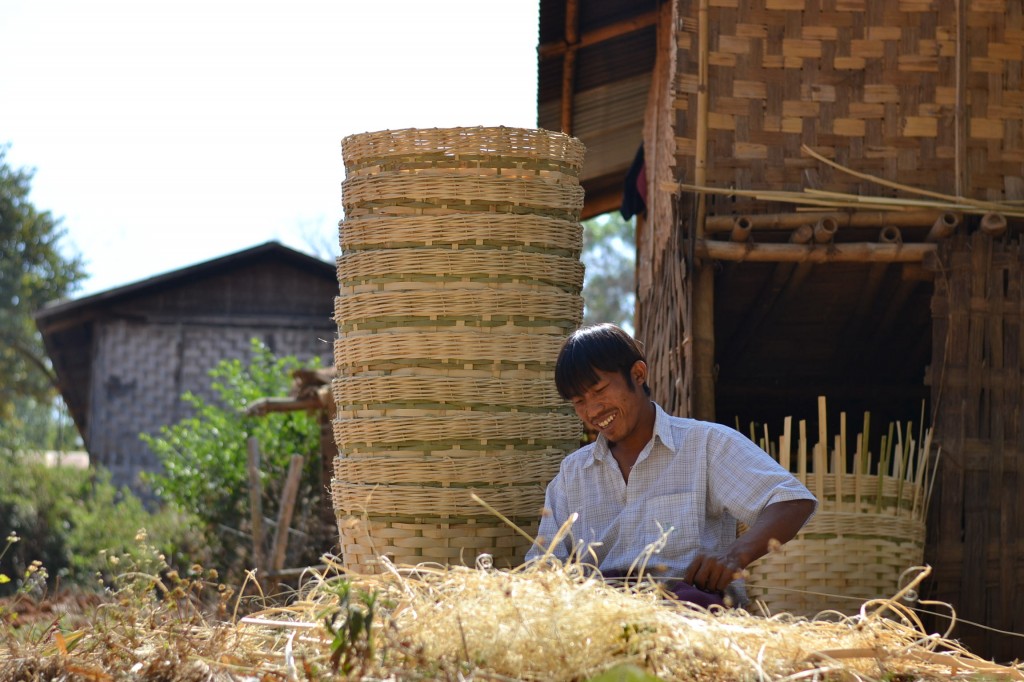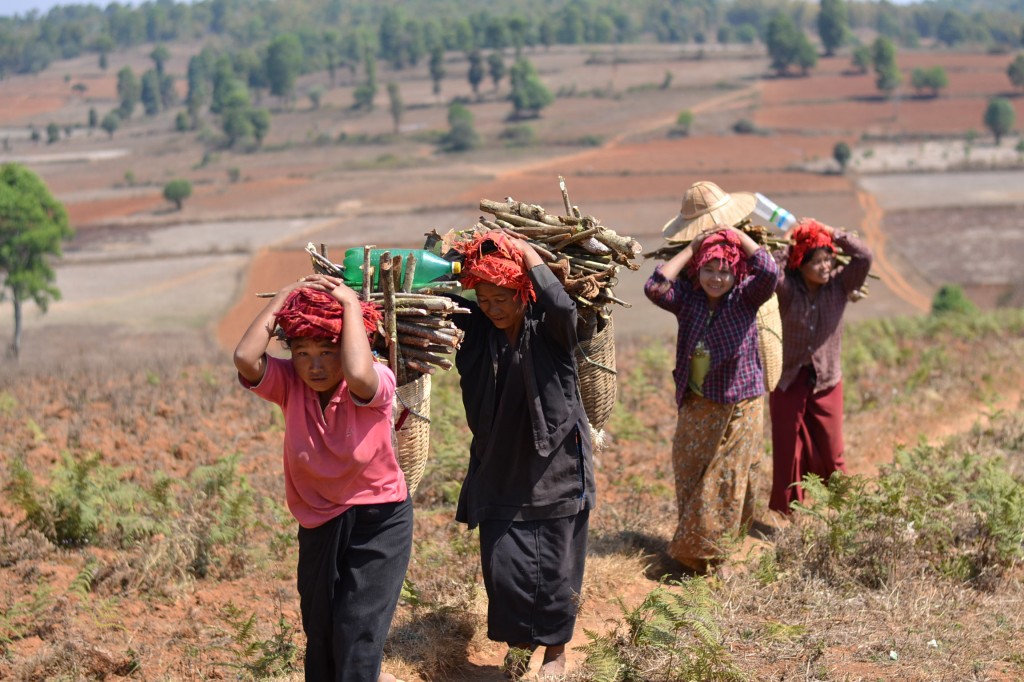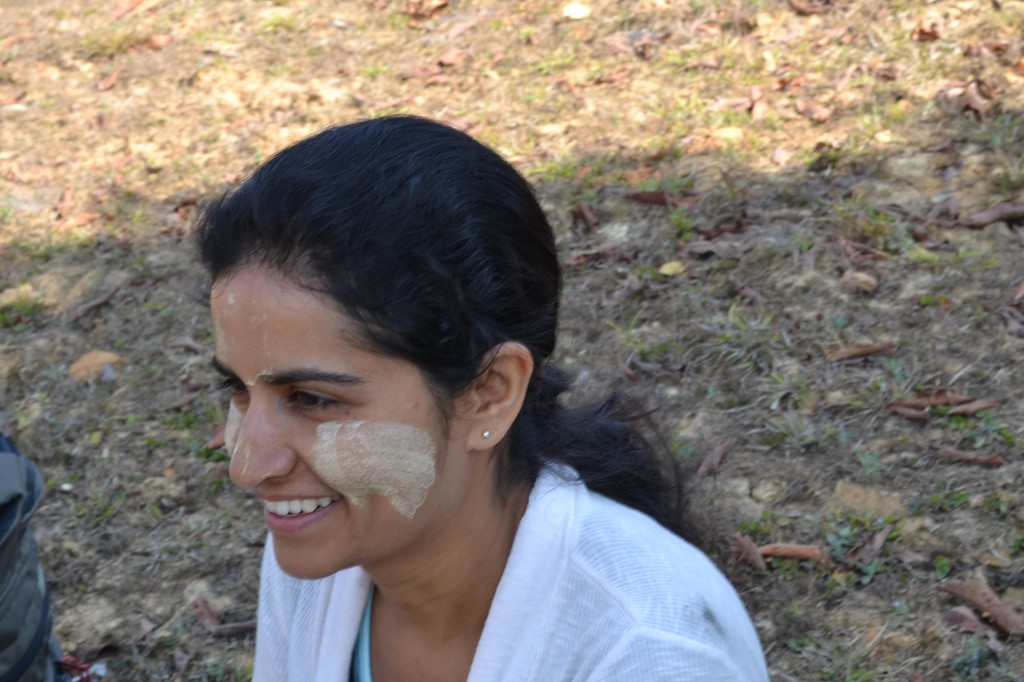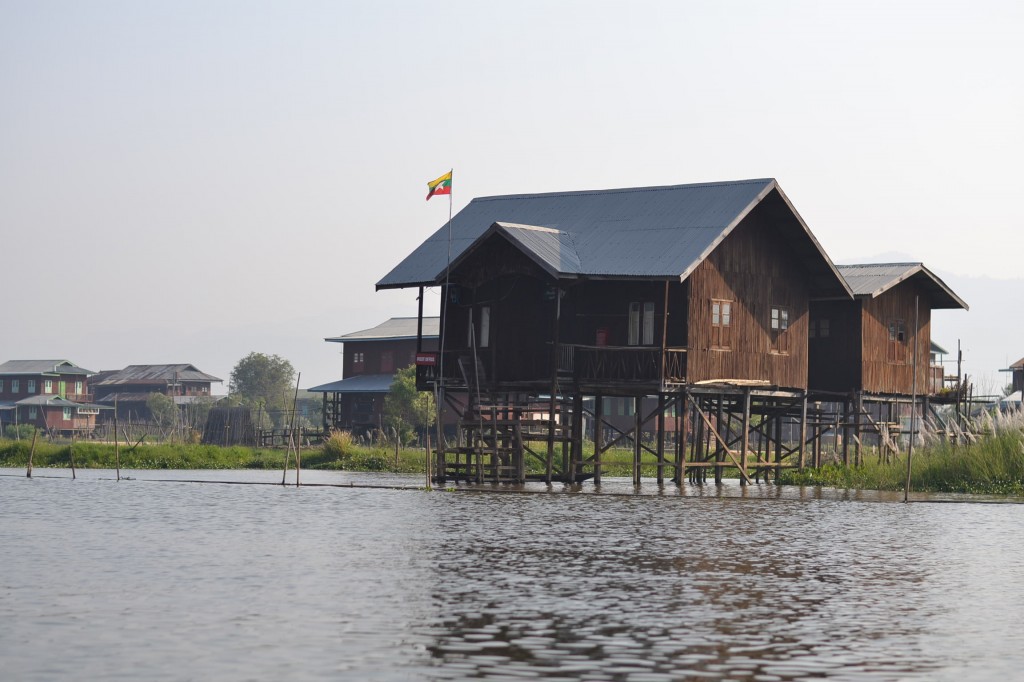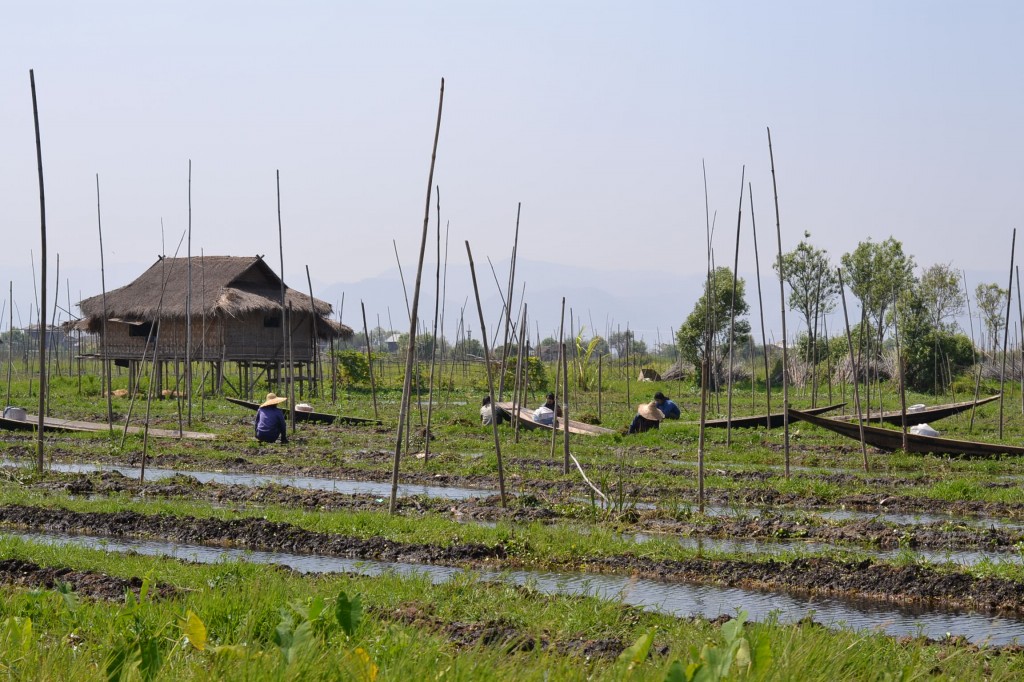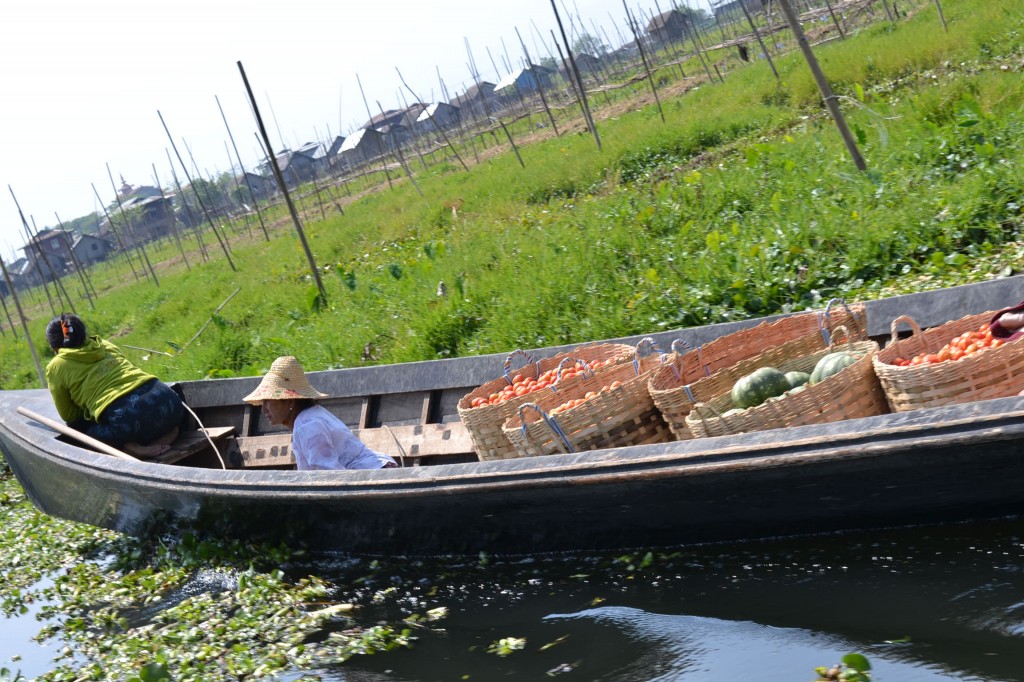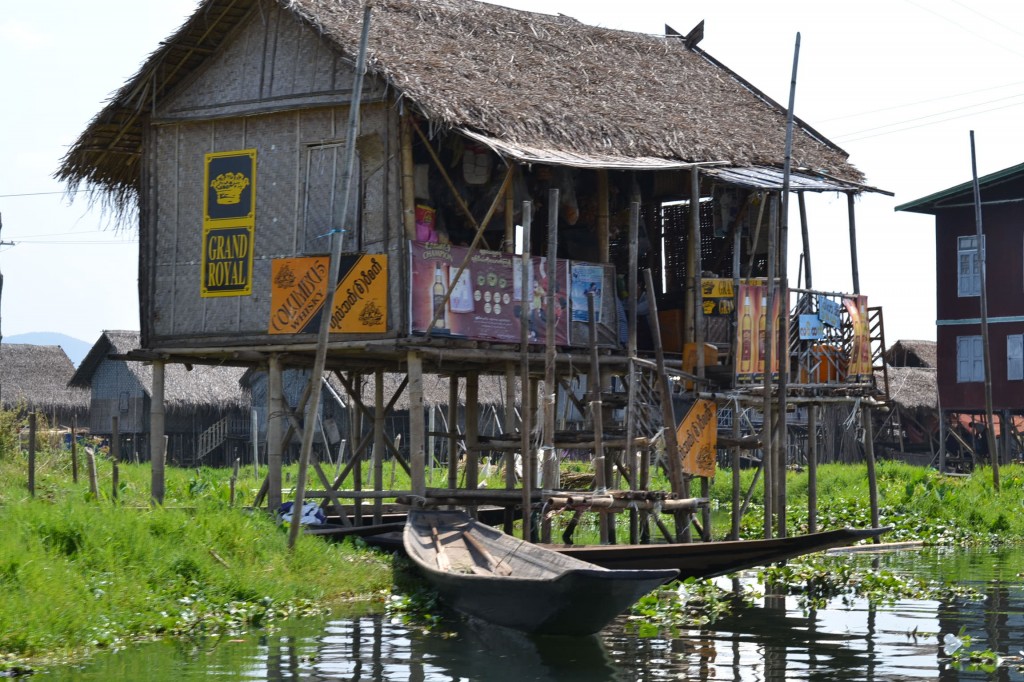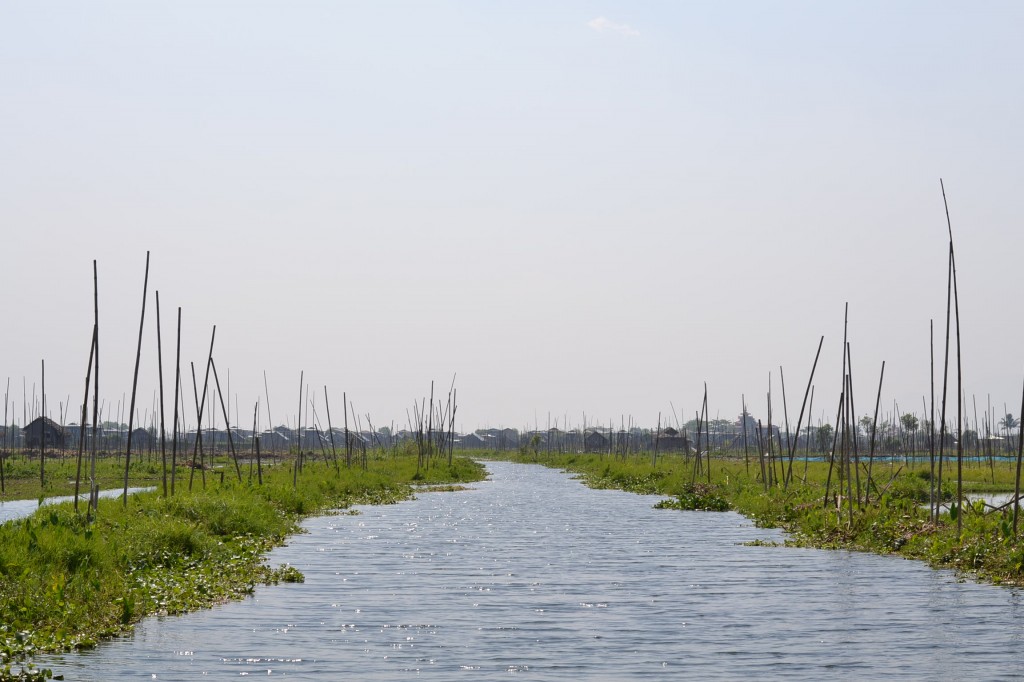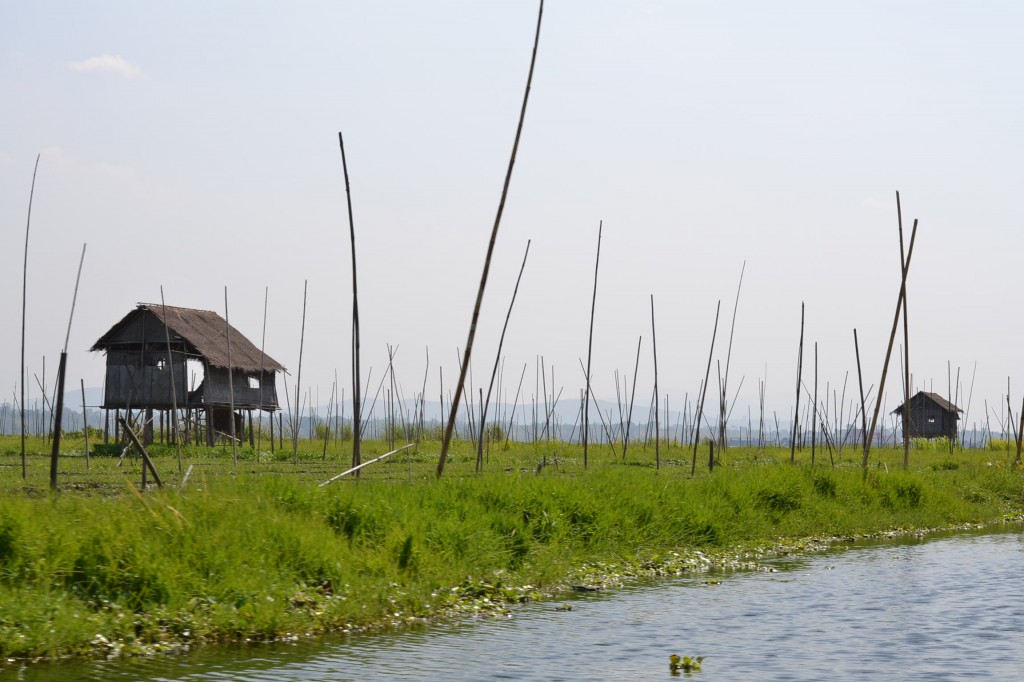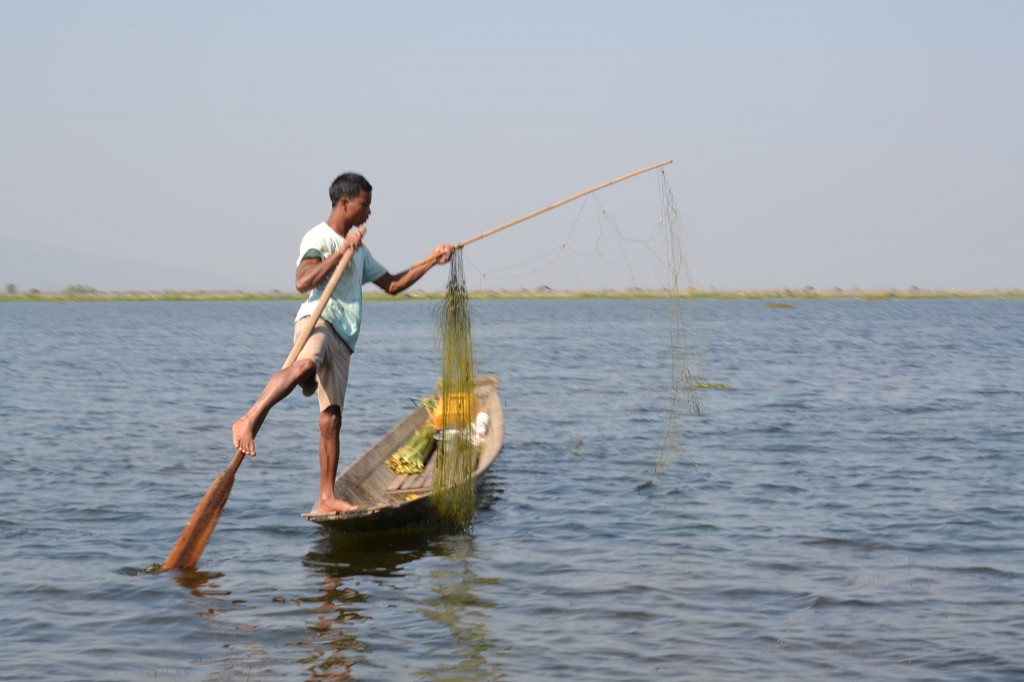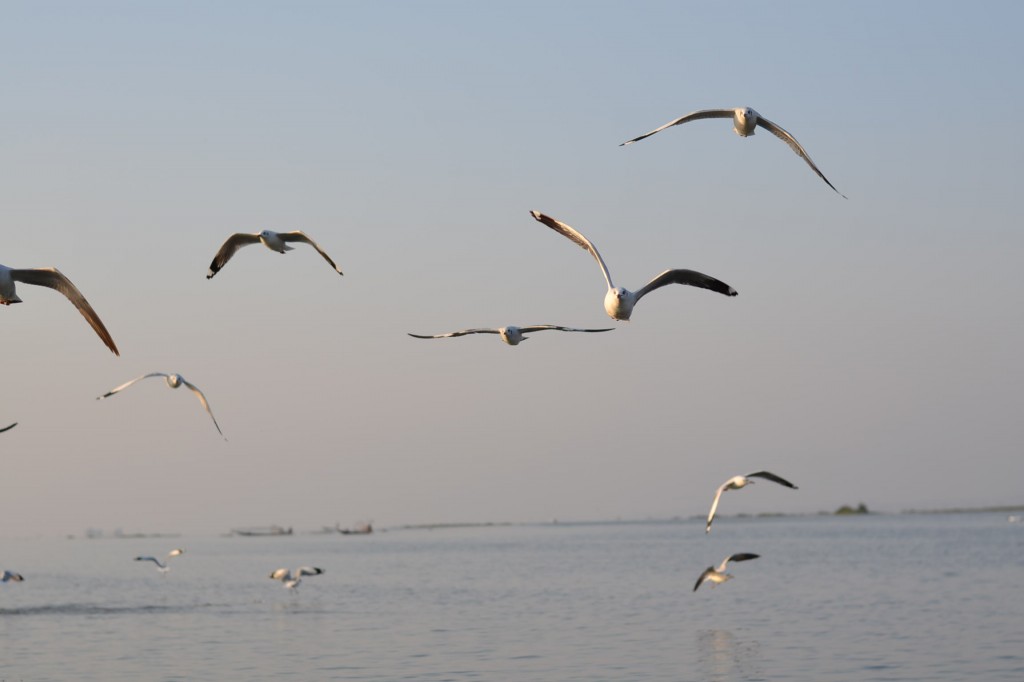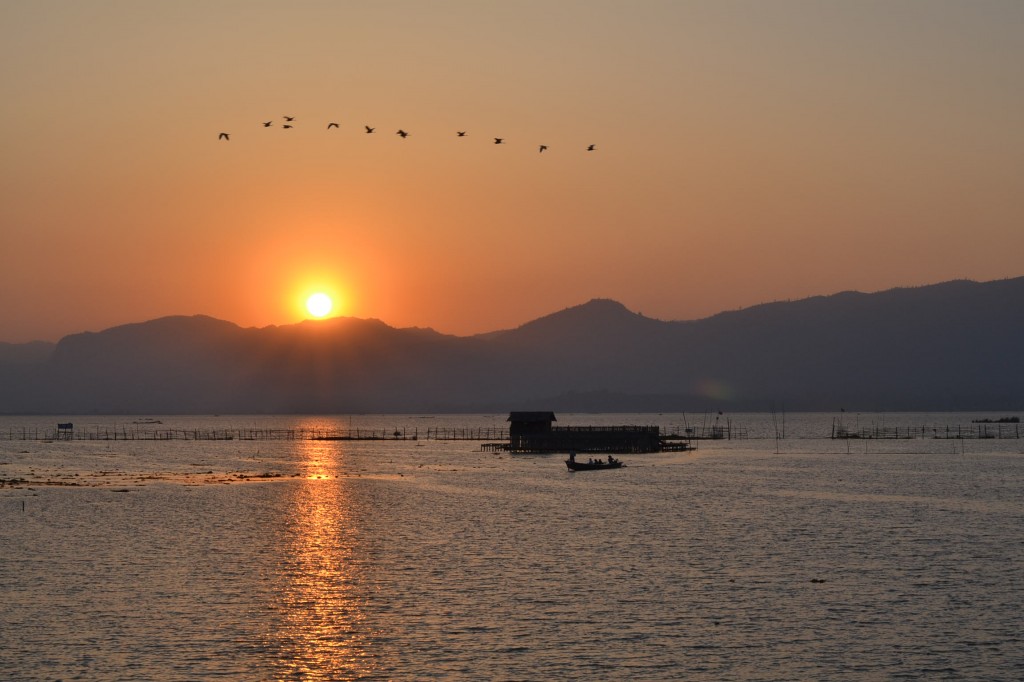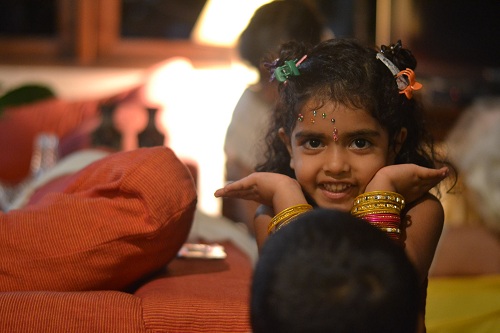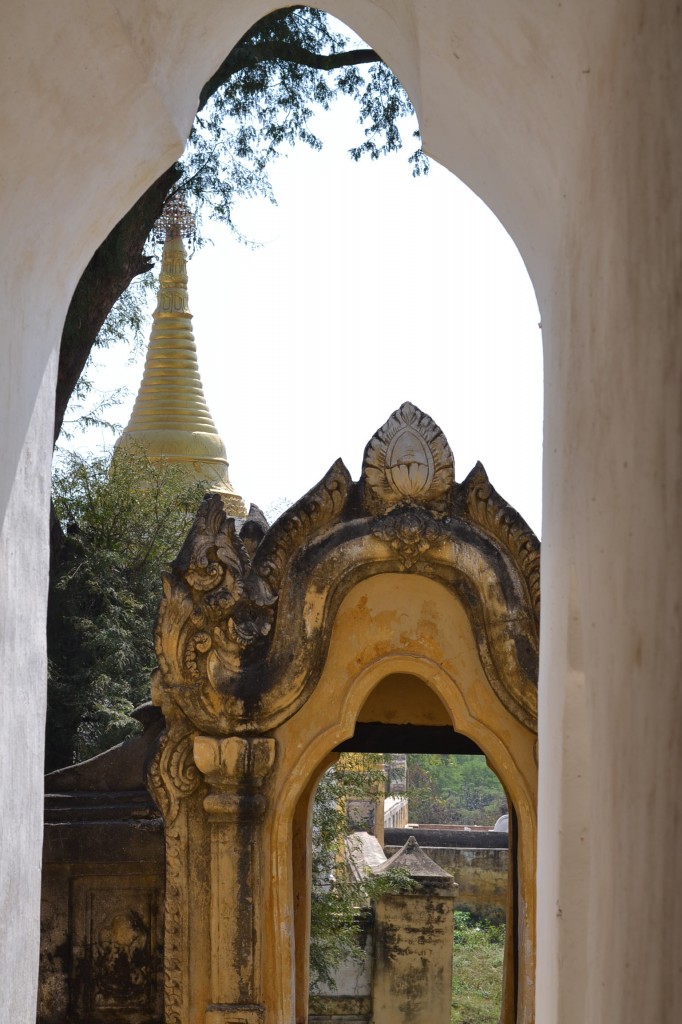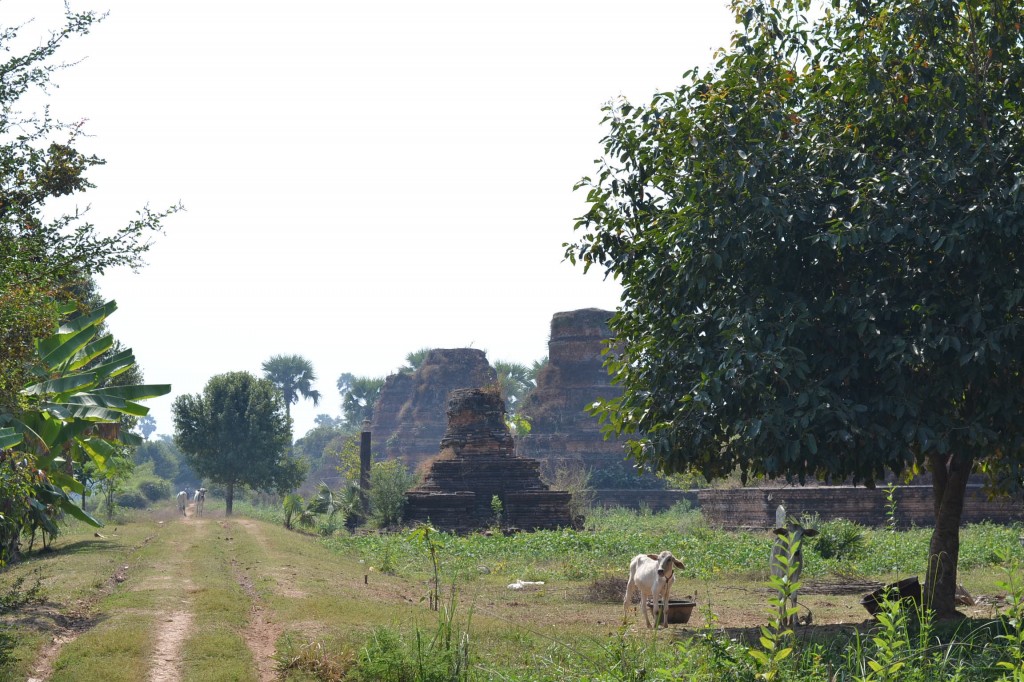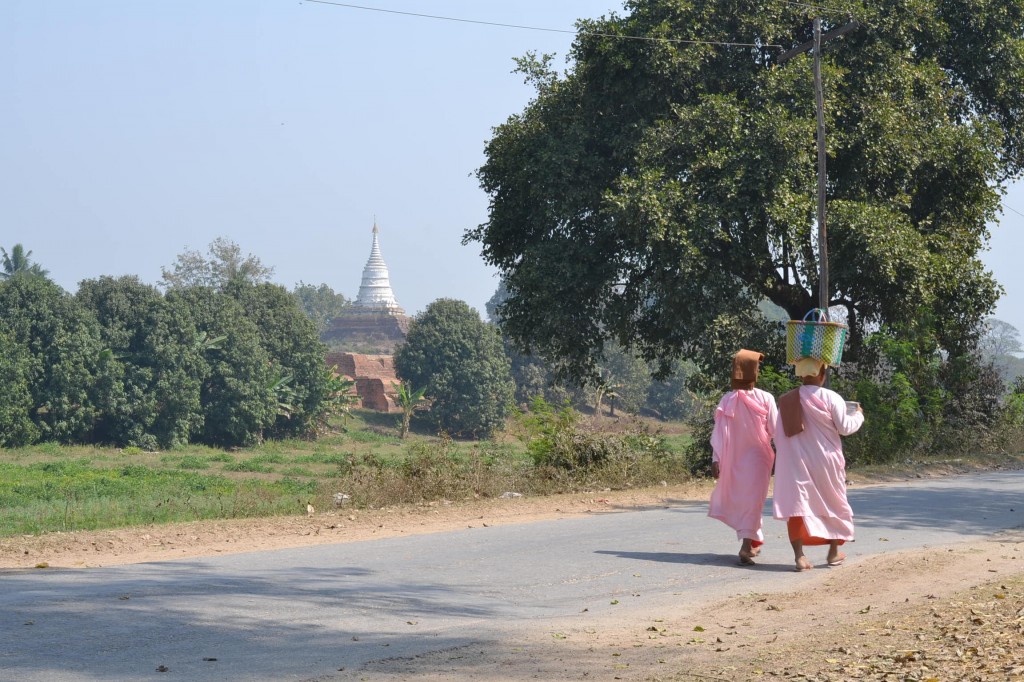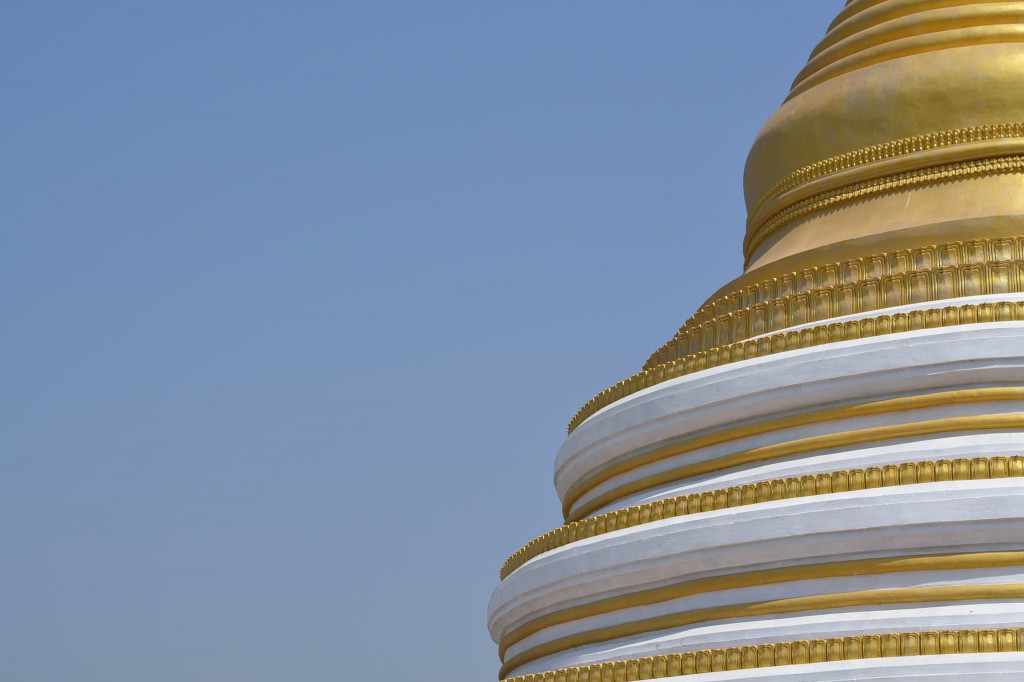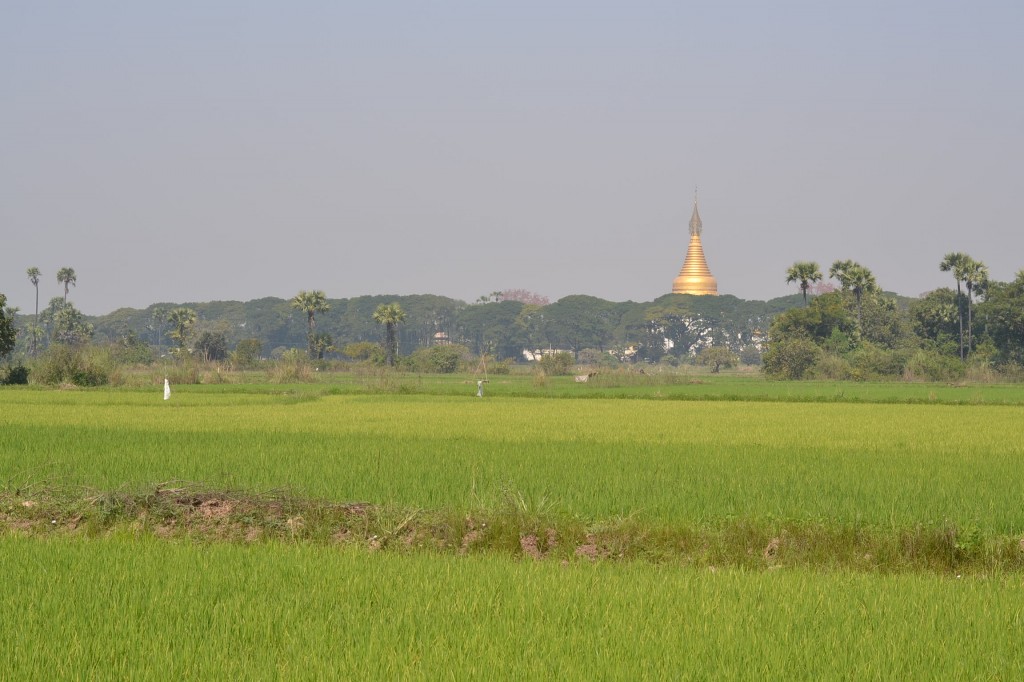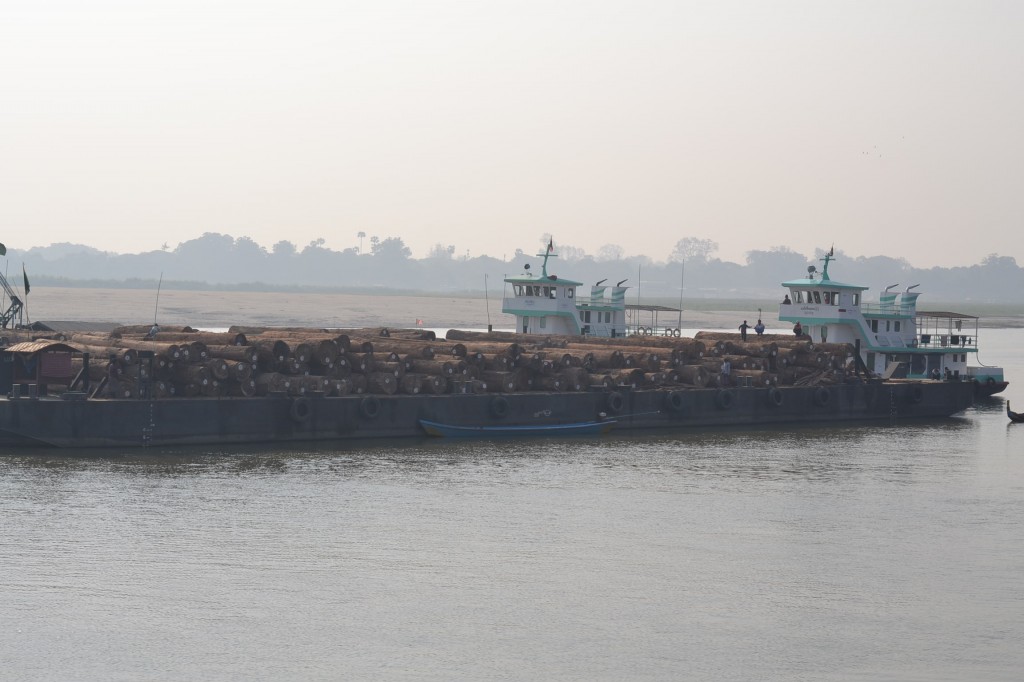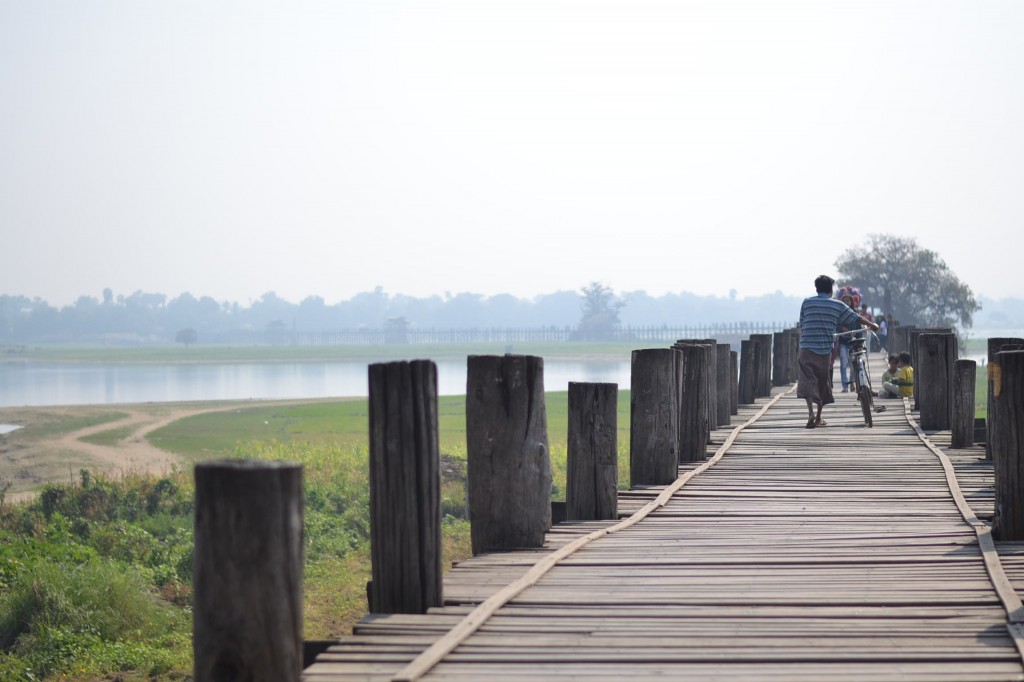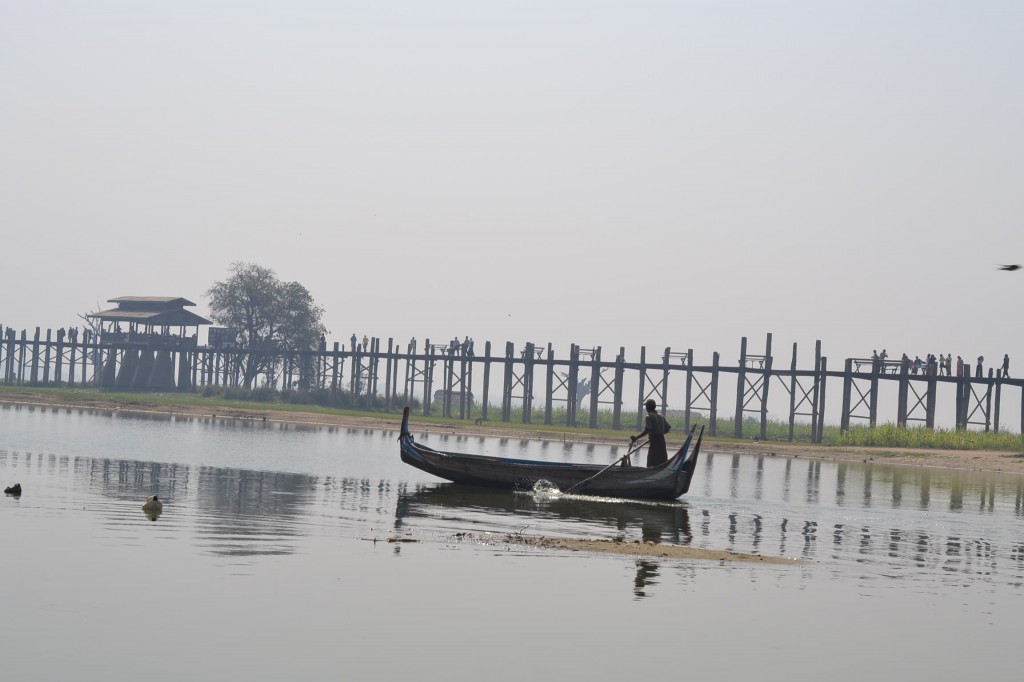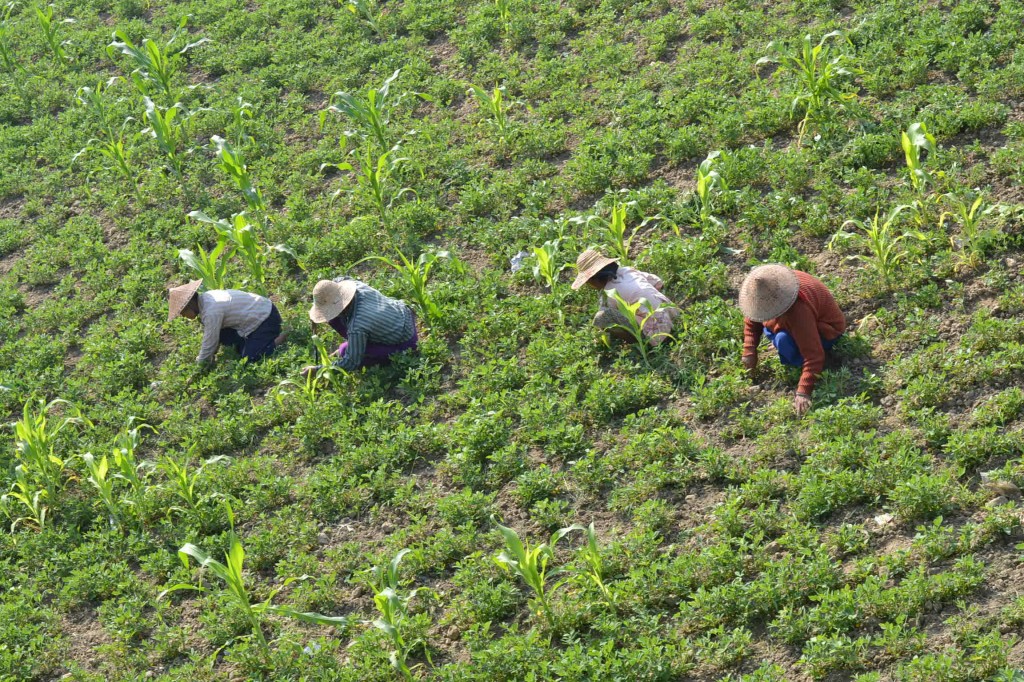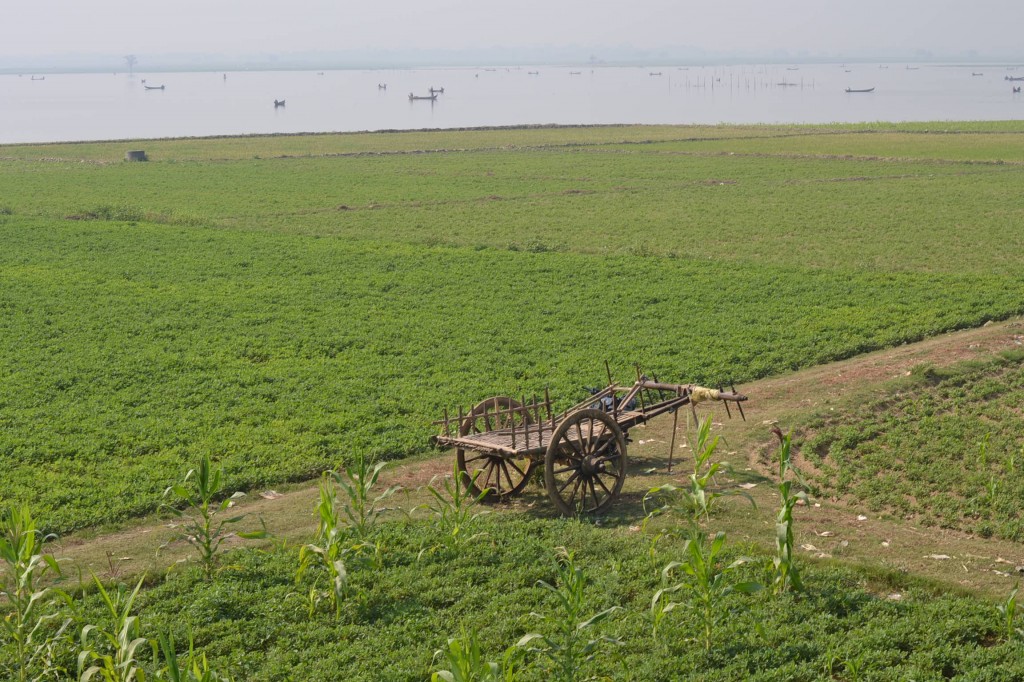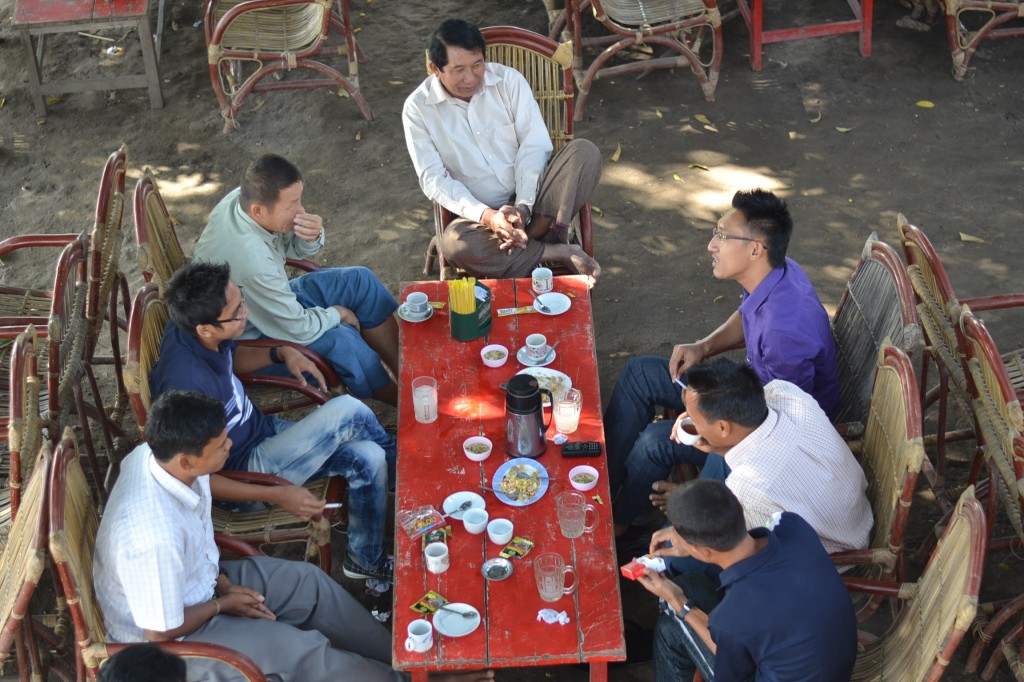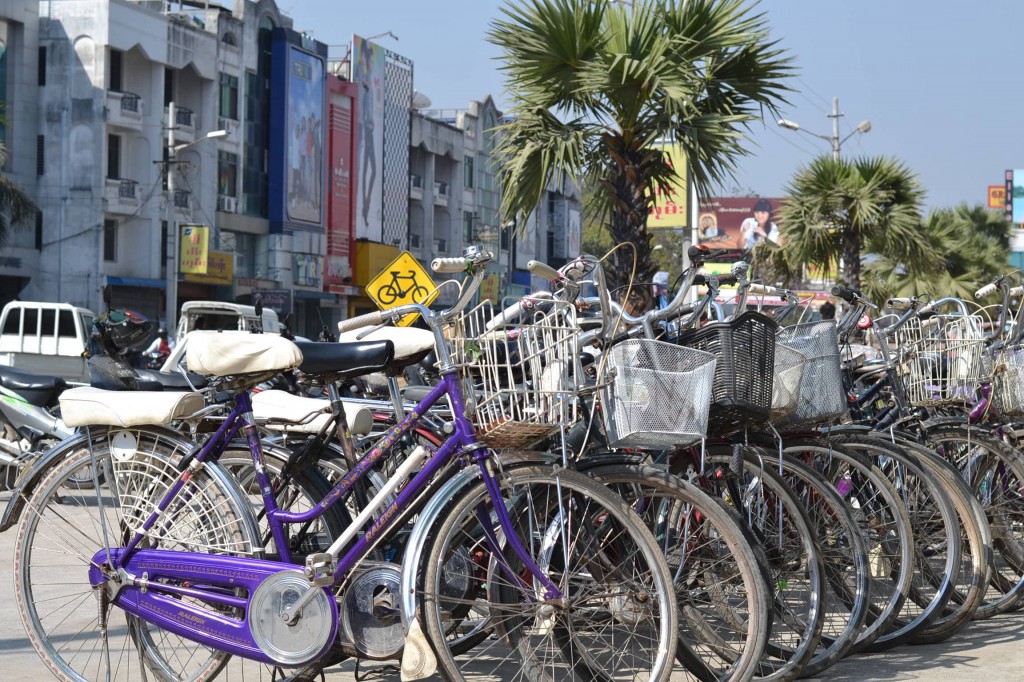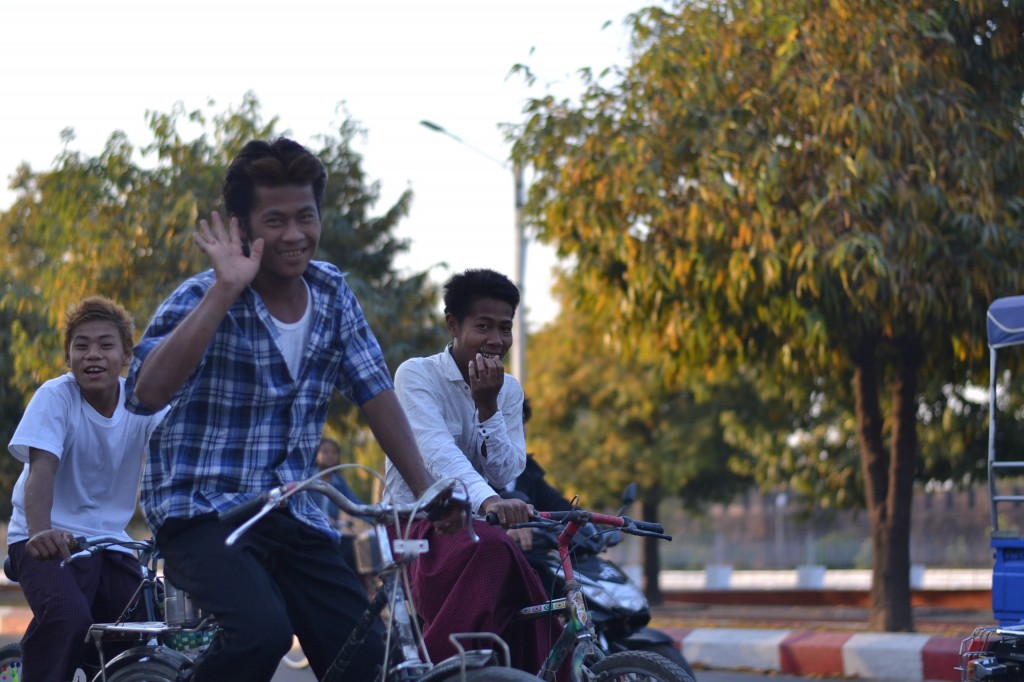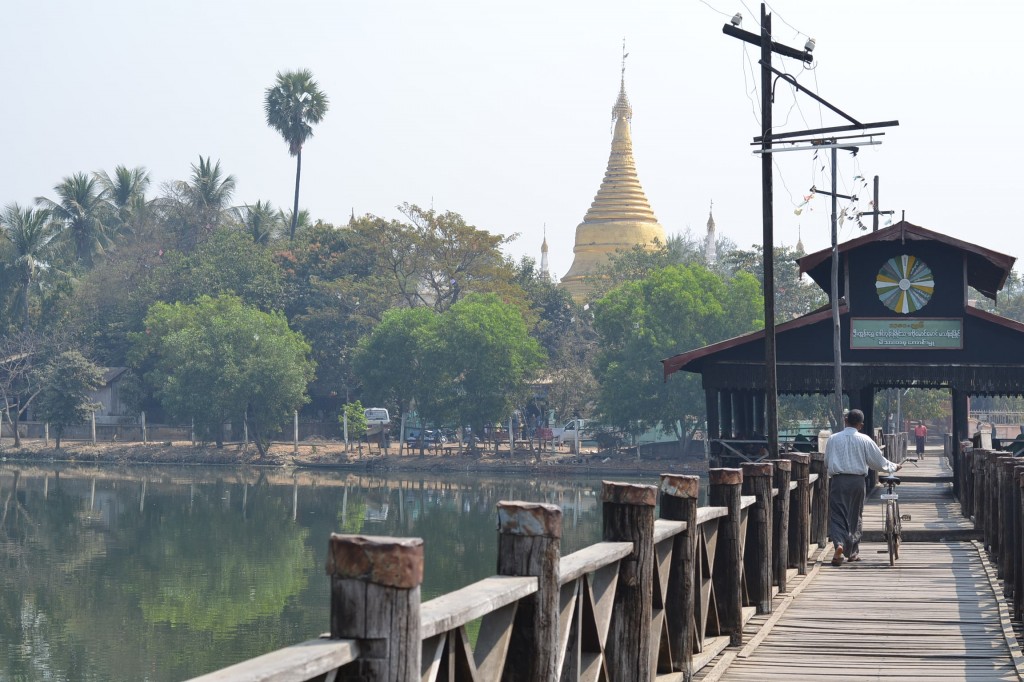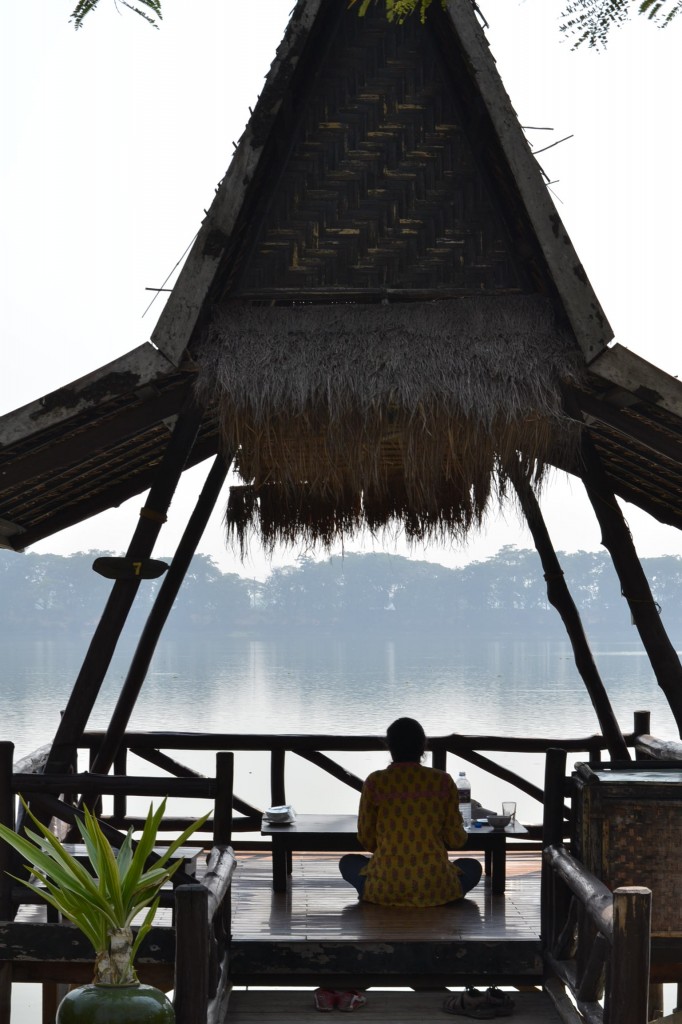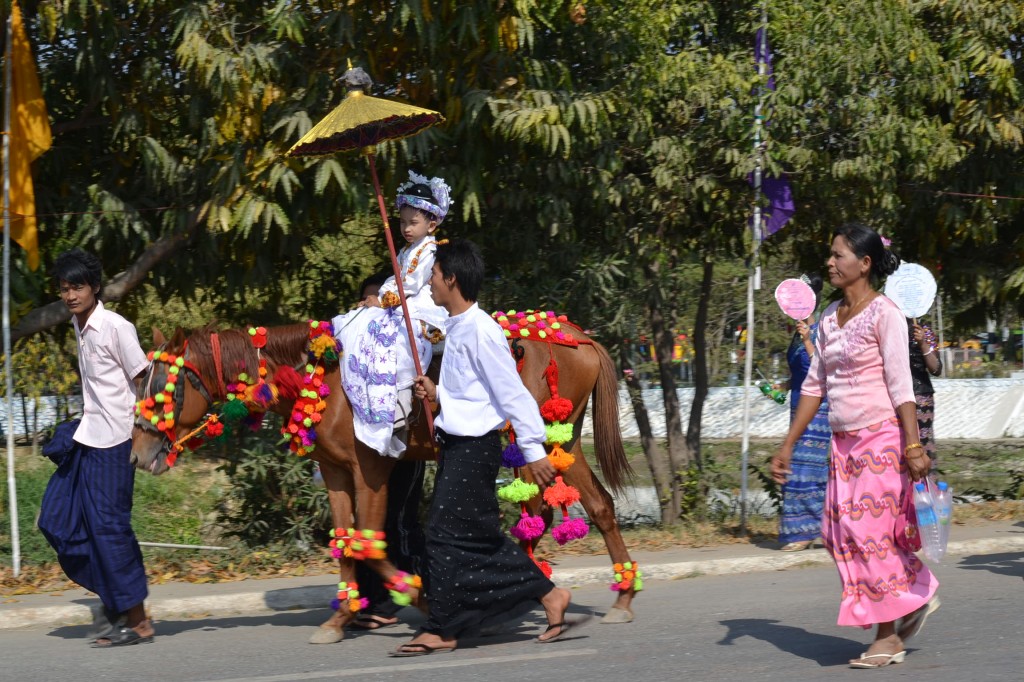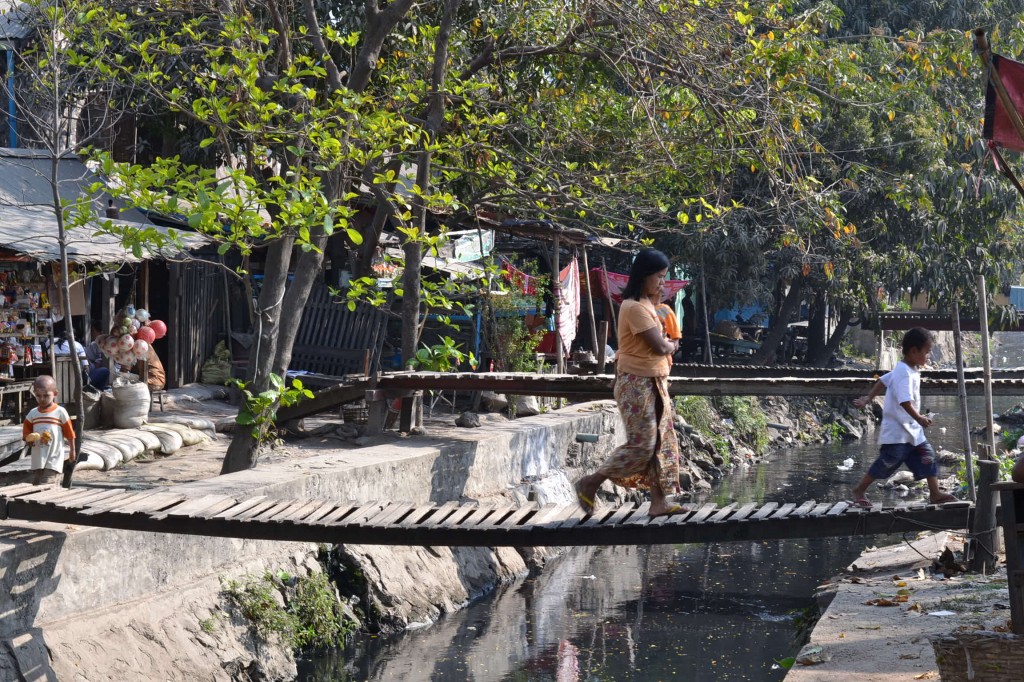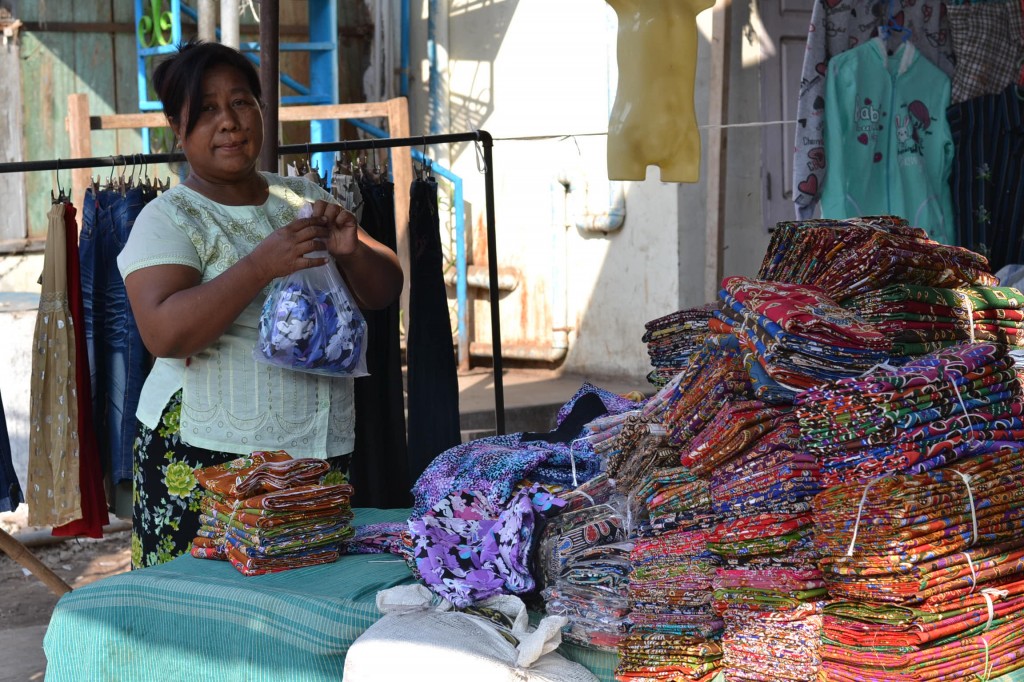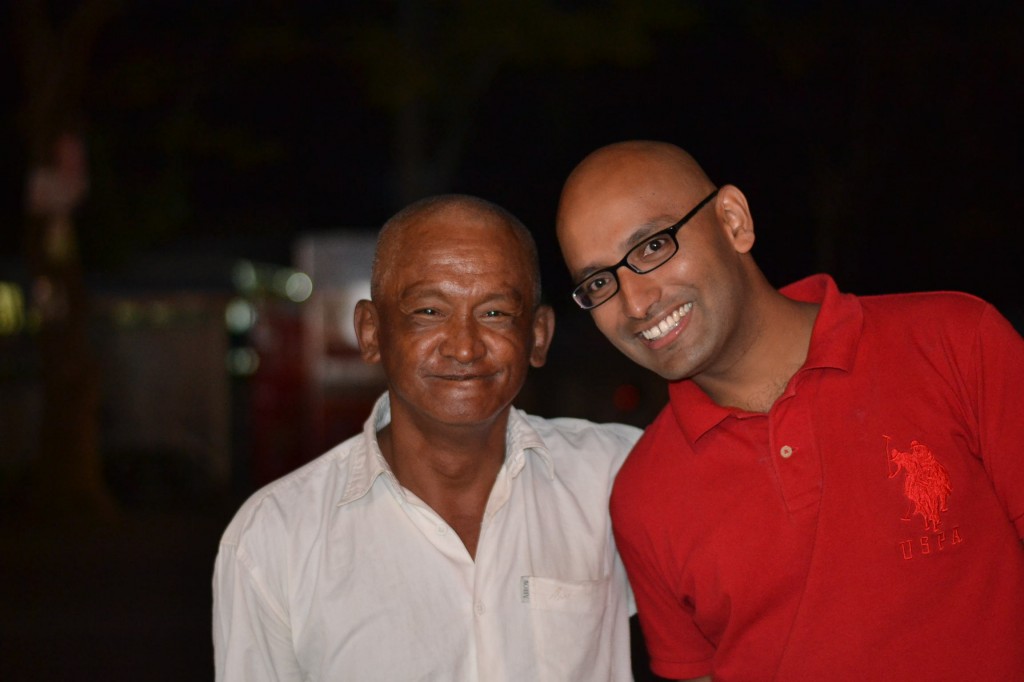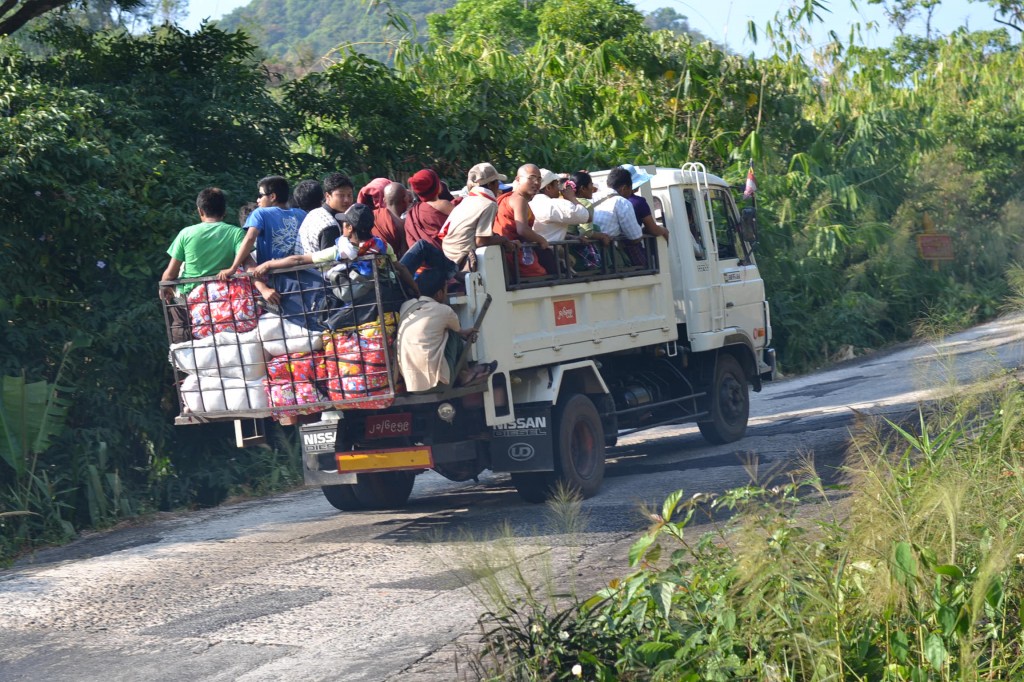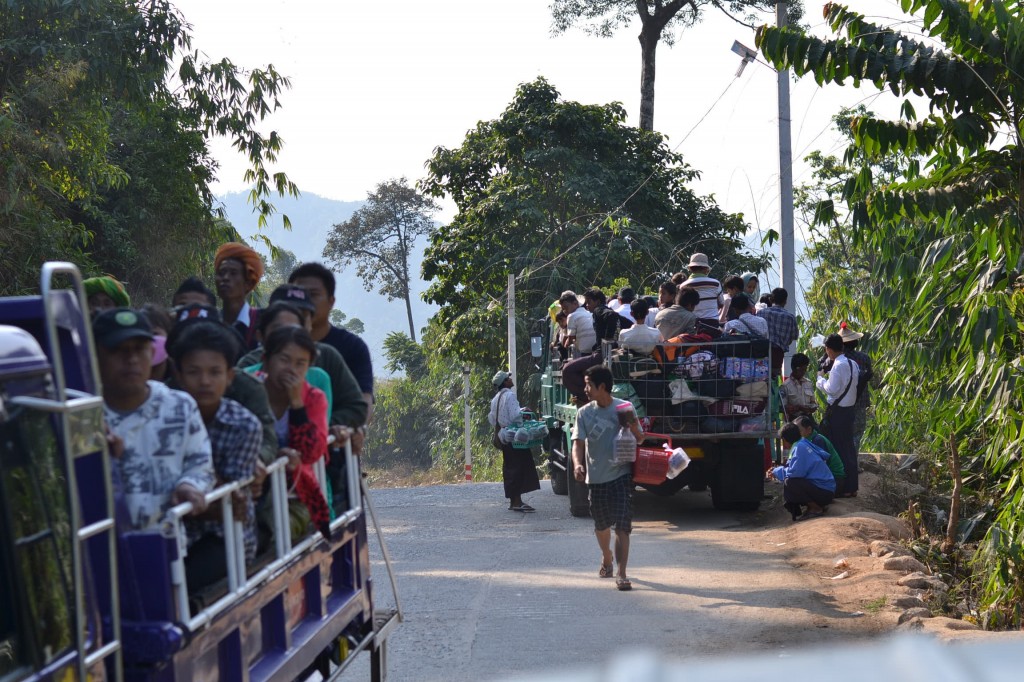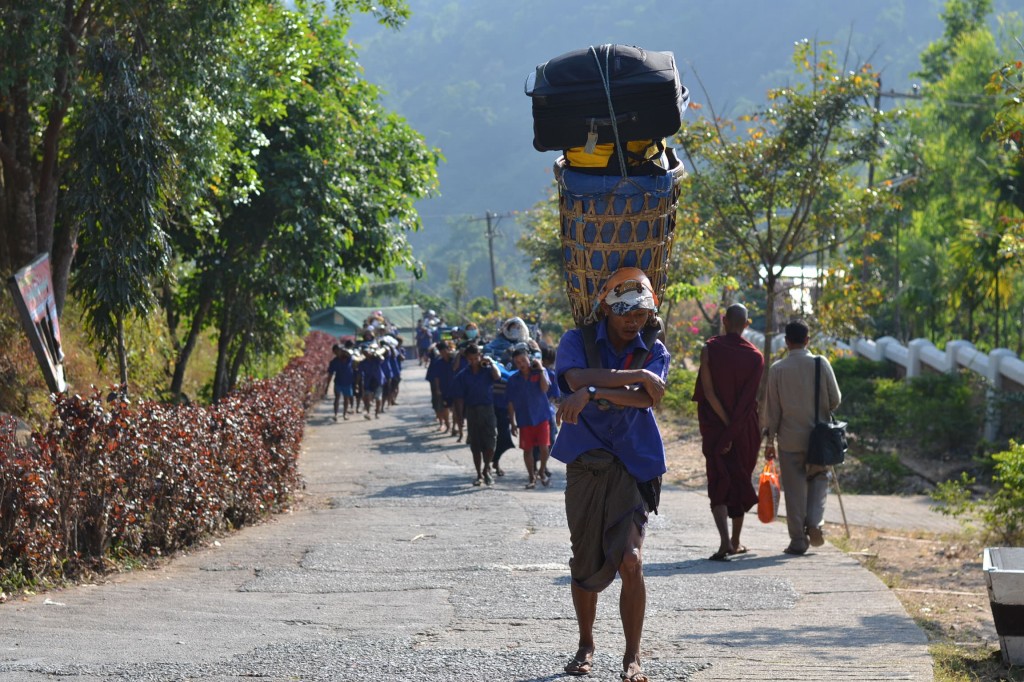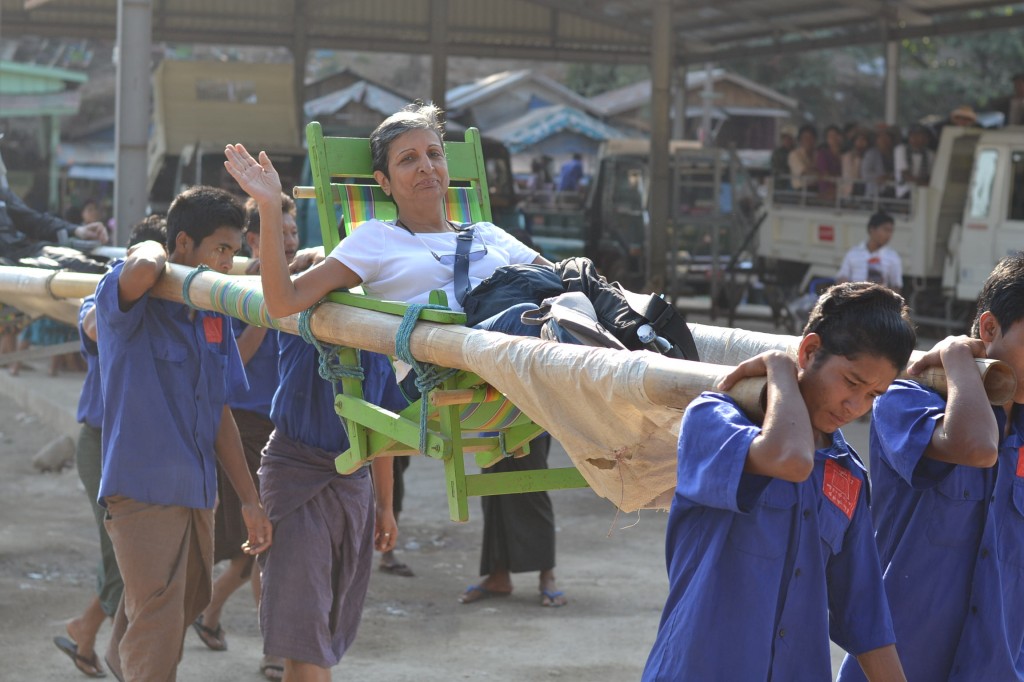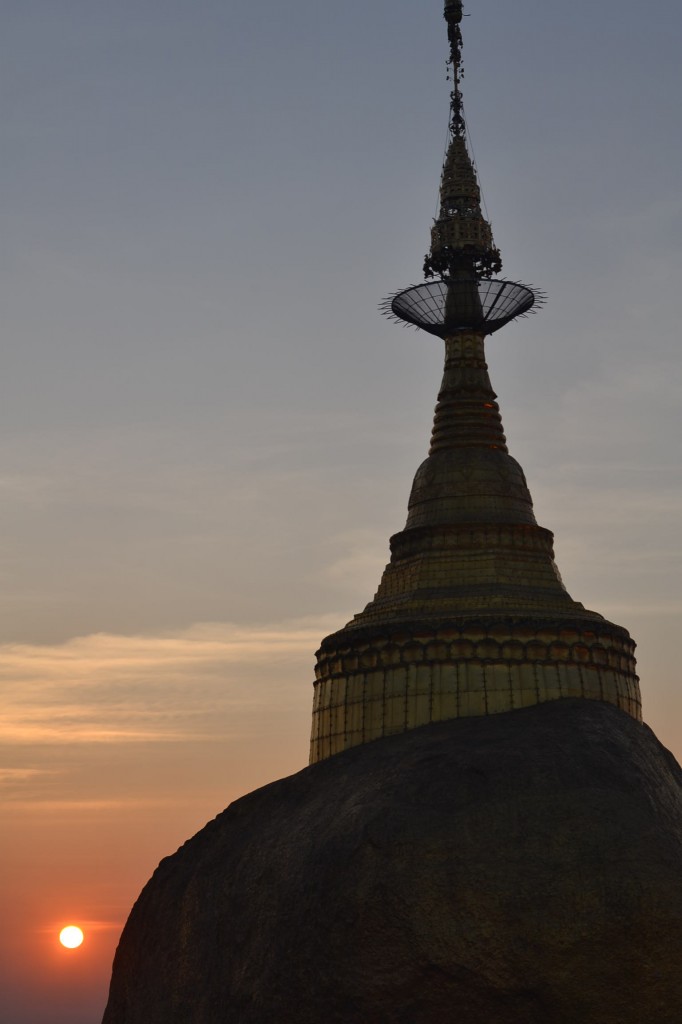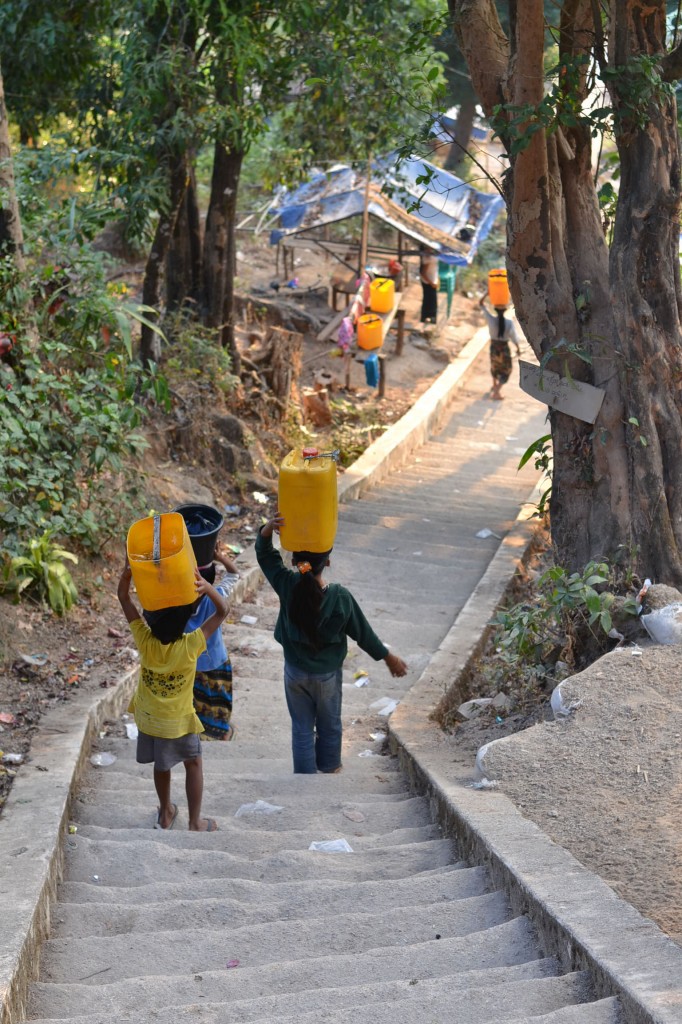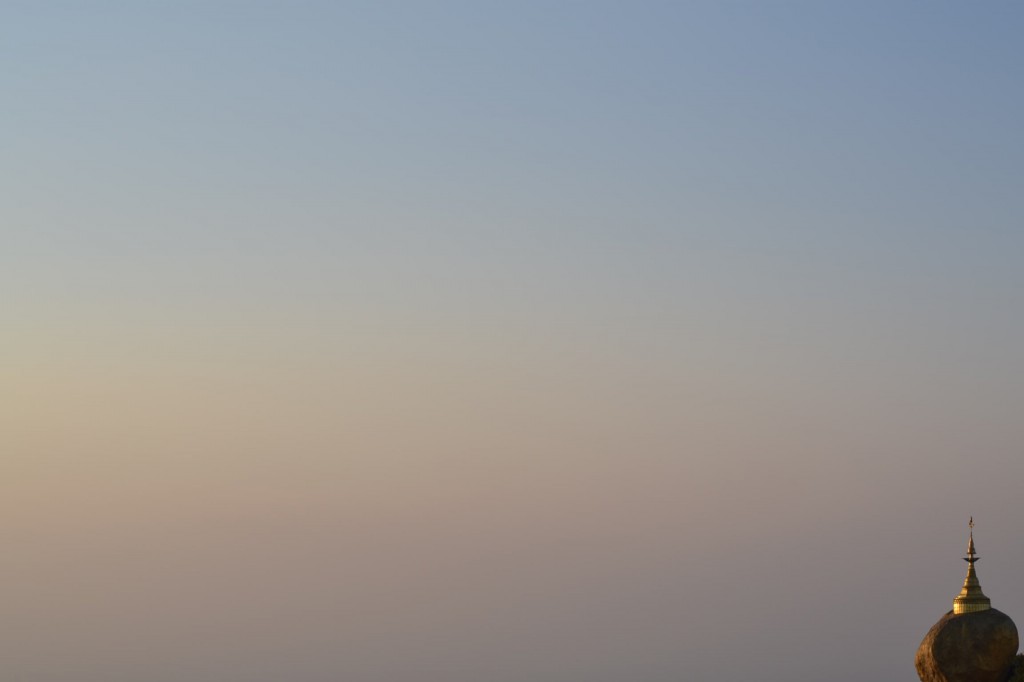For the 230 years leading to 1287, Burmese kings commissioned over 4,000 Buddhist temples in the plains of Bagan. The building fest was triggered by the region’s shift from Hinduism and Mahayana Buddhism to Theravada Buddhism. At its height, Bagan was a vibrant religious and cultural center. The exact cause of Bagan’s decline is contested, but a combination of invasions and natural disasters (most recently a 6.5 Richter scale earthquake in 1975) compromised original structures and drastically reduced the population. Many of the temples have now been reconstructed, although historians claim with minimal respect for authenticity. The government relocated all remaining inhabitants of Old Bagan in 1990. Despite these controversies, Bagan remains what Marco Polo described as “one of the finest sights in the world.”
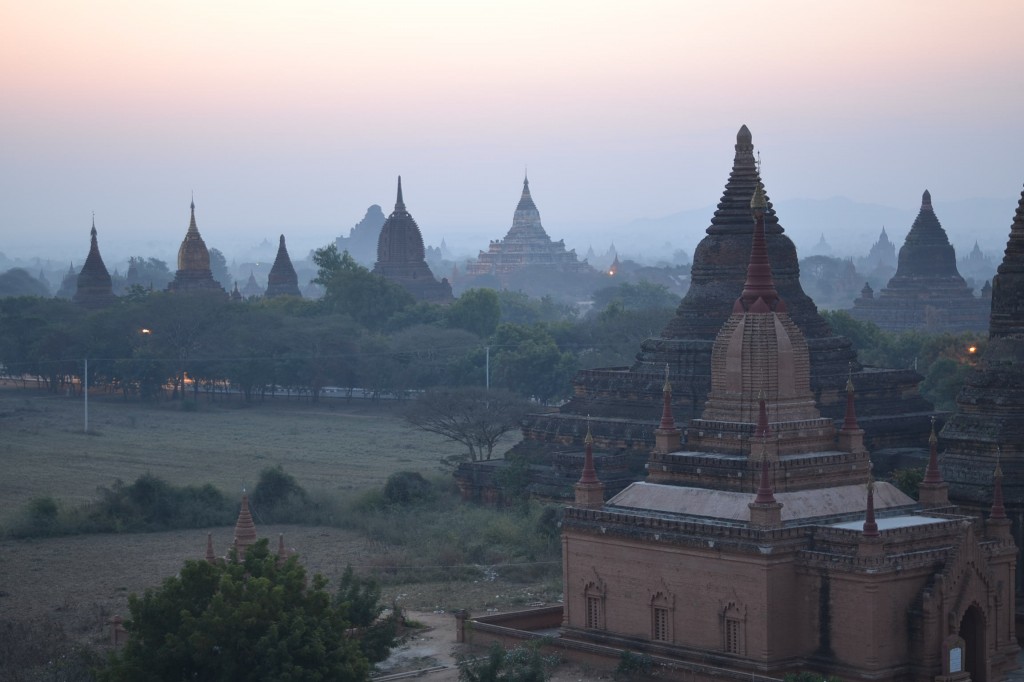
What makes Bagan so breathtaking is that thousands of temples lie in an area of just a couple of square kilometers. While each individual temple is less grand than the striking white and gold pagodas seen elsewhere in Myanmar, taken together the old brick structures for me rivaled sites such as the pyramids of Giza or Angkor Wat. Moreover, since Myanmar is still relatively new to mass tourism, it’s easy to explore the temples at a slow and leisurely pace, generally without the interruption of other tourists.
Bagan isn’t that far from Mandalay, but rather than fly the distance we opted to take the boat down stream on the Irrawaddy. There are local boats and tourists boats that make the journey. Usually we opt for local service, but in this case it meant adding another six hours to the ten hour journey so we went the tourist route. The trip was so comfortable that Sandeep set up is own home office, complete with coffee service, while I oscillated between a lounge chair on the open deck and stuffing myself with fish curry in the dining hall.
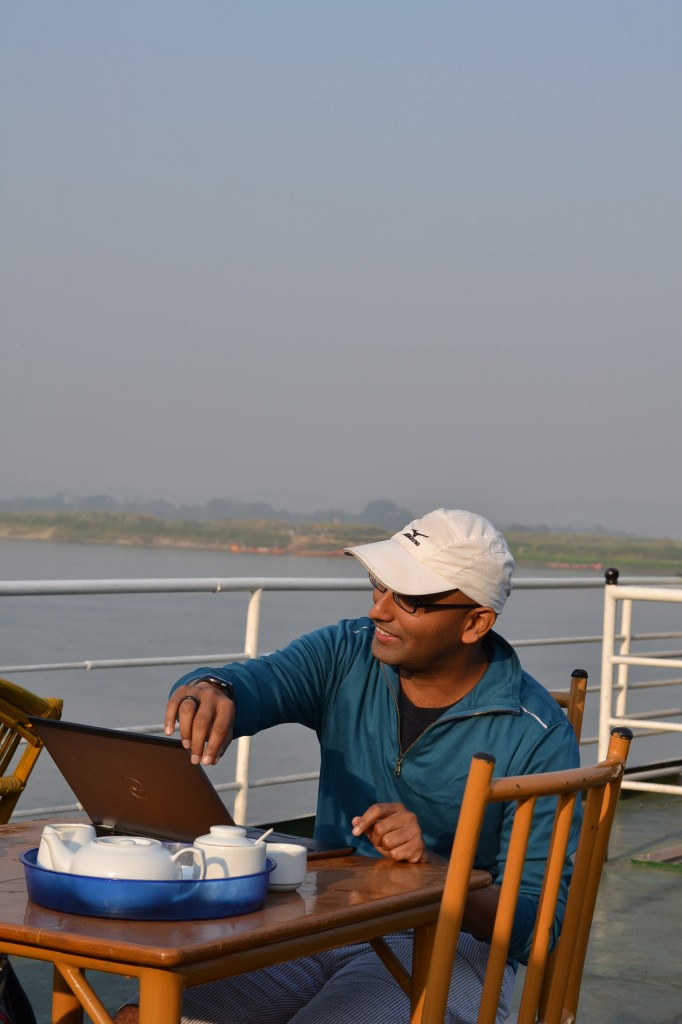
The trip down this portion of the Irrawaddy may lead one to believe that there are no people in Myanmar. Once out of the Mandalay area, the riverbank is isolated save for a few shacks and the occasional pagoda. Life on the river itself is pretty quiet, and we passed another boat every 10 minutes or so. Most of them were small row boats, each carrying one or two fishermen.
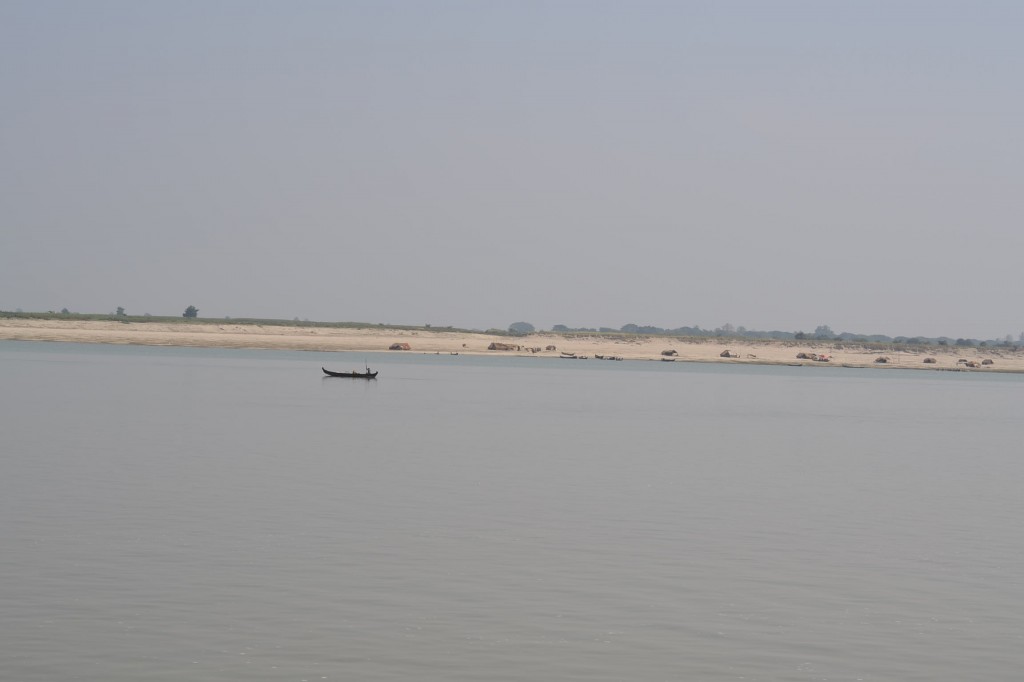
We approached Bagan at 6 PM, just in time to catch the sun setting over the temple town.
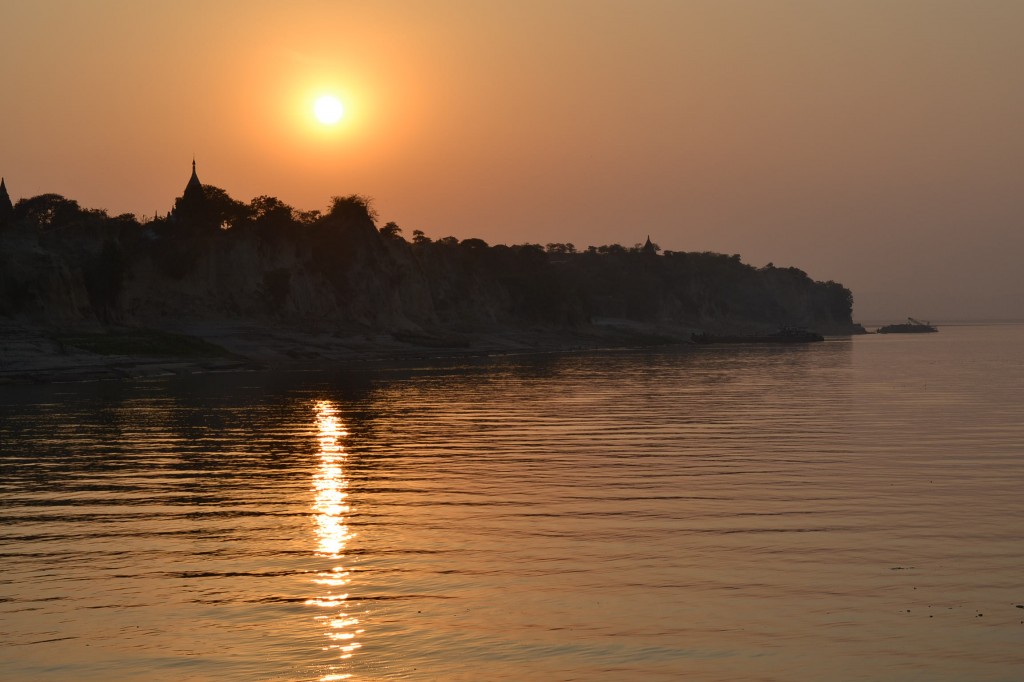
We only had one day in Bagan so got up early (as in 4:30 AM) to catch the sunrise. Cycling is the best way to explore the ruins but cycling in pitch dark back roads was a little more adventure than we planned. Many of Bagan’s quieter temples are either closed or have compromised structures, so it can be a challenge to find one to climb and watch the sun appear. Fortunately, we had a guide who knew of just the right temple, unmentioned in our guidebook, and led the way as we followed in the early morning darkness. The temple was deserted and steep stone internal stairs echoed ominously and smelled of bat droppings. But the view from the top was entirely worth it. As the sun stretched higher into the sky it revealed layers and layers of temples.
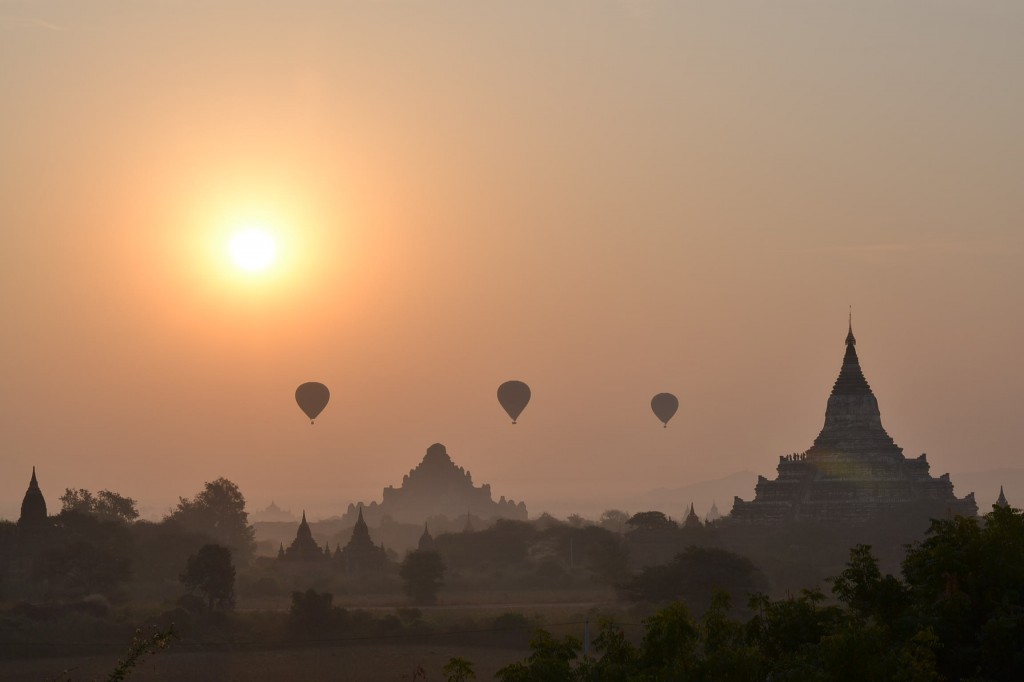
We decided to make the most of the early morning cool and cycle to some other temples. Luckily, at our first stop I befriended the ‘watch woman’ who had a daughter Kayan’s age. She also happened to hold keys to the gate of the internal staircase. For 1000 kyats (about $1) she was happy to unlock it. We had the temple to ourselves for an hour and made the most of its various vantage points. This particular temple was completely built from red brick, with the exception of the golden umbrella on its stupa.
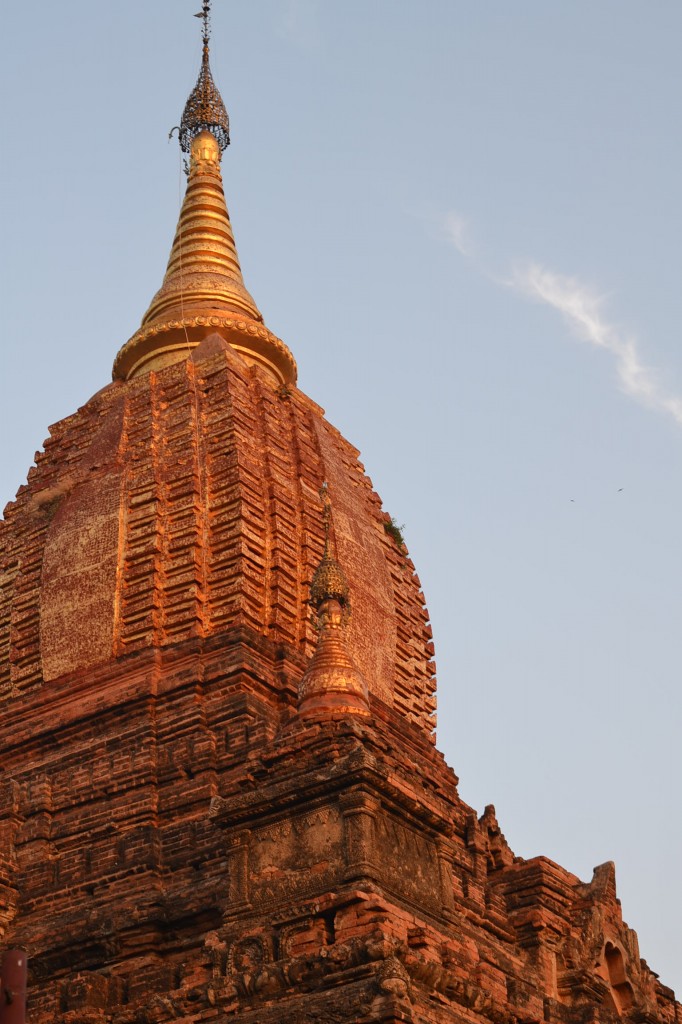
Most of Bagan’s temples are quiet ruins. The few that are active temples hold fascinating relics such as dozens of miniature Buddha statues at Ananda temple. Every temple is an exploration sight, particularly for those who can brave the narrow and dark staircases and alleyways.
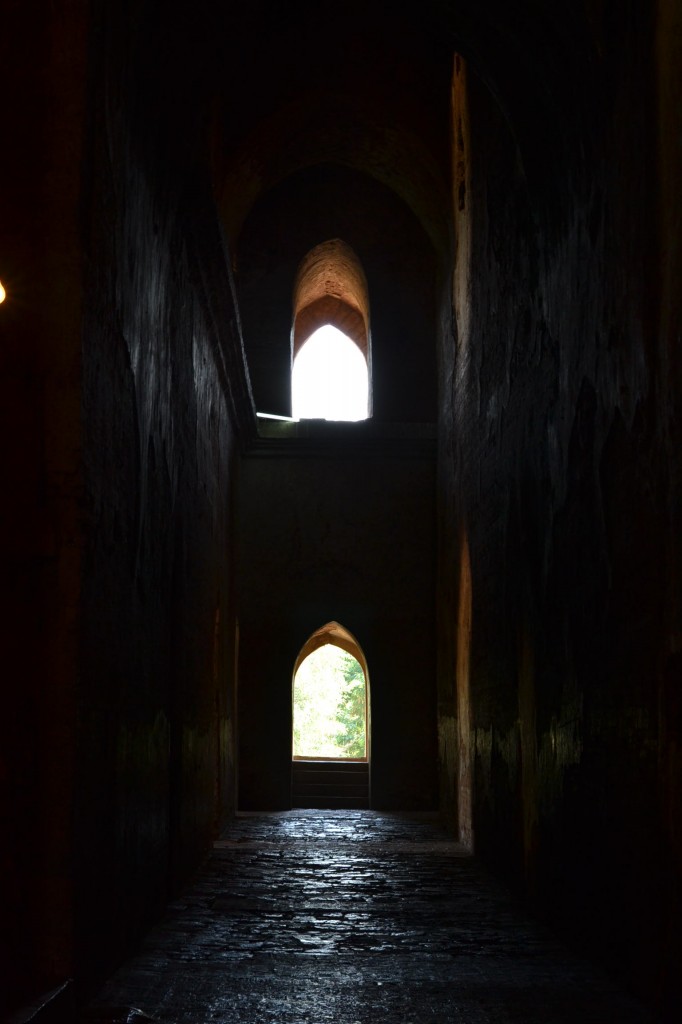
We continued our journey through side roads, catching glimpses of local life, such as this goat herder.
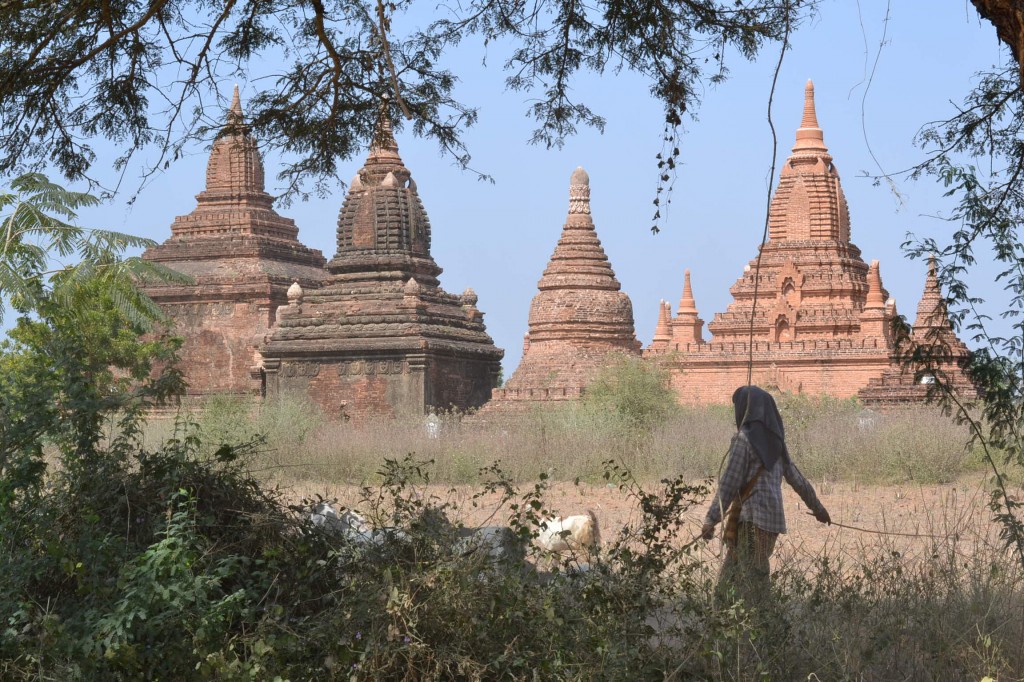
After cycling around some more the sun set in and we turned back to our hotel, where I treated my legs to a one hour massage for 4000 kyats ($5). Rejuvenated, we hopped on the bikes again to catch the sunset. We had cycled to the turnoff of a pagoda that Sandeep’s brother had recommended. When we got there, we realized the back road was too sandy for our bikes. With the sun threatening to set at any moment, we dropped the bikes and started running to our destination, yelling something about how this felt like a scene from Amazing Race. In the end we had to settle for watching sunset from a field. Not our plan, but breathtaking none the less.
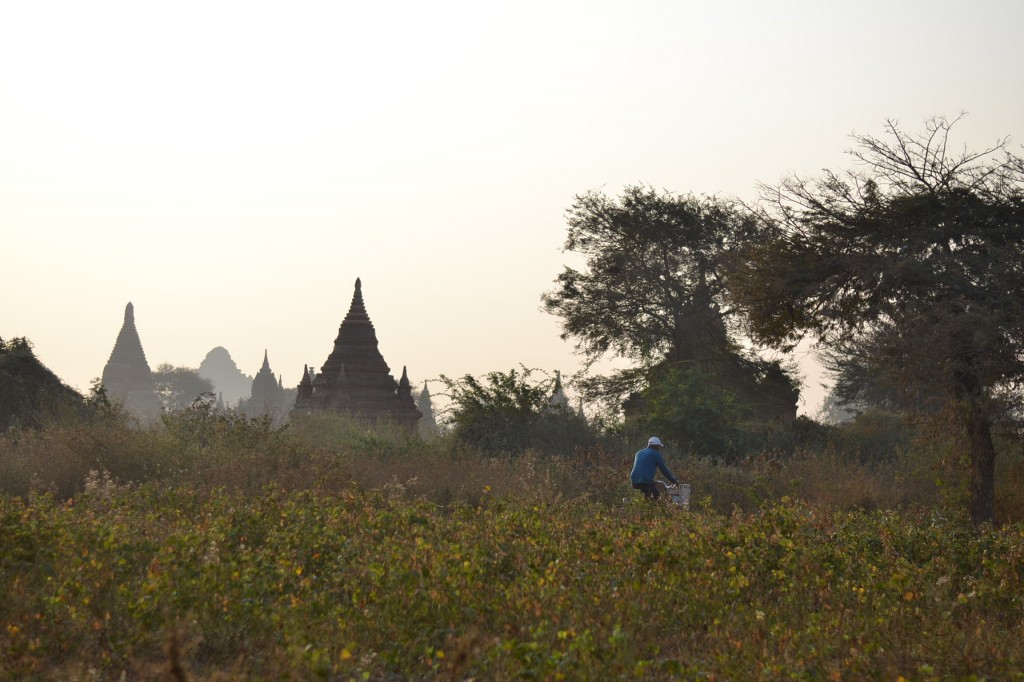
Slightly defeated, we started our slow peddle back home. It quickly became faster as it got darker and we realized this time, without our guide, we didn’t have a flashlight to lead us back. We spent a total of six hours cycling around Bagan in one day. The bike rental from the hotel cost 3000 kyats ($4). Even though our bodies (well, maybe just mine – Sandeep seemed ready to cycling through the night) were signaling shut down, we still think that cycling is the best way to explore the lesser visited pagodas of Bagan. Our flight out of Bagan was at 7:50 the next morning, so we were able to catch one more sunrise before departure.
